Sun, 12 August 2018
~The Simple Sophisticate, episode #221 |
Sun, 5 August 2018
~The Simple Sophisticate, episode #220~Subscribe to The Simple Sophisticate: iTunes | Stitcher | iHeartRadio | YouTube | Spotify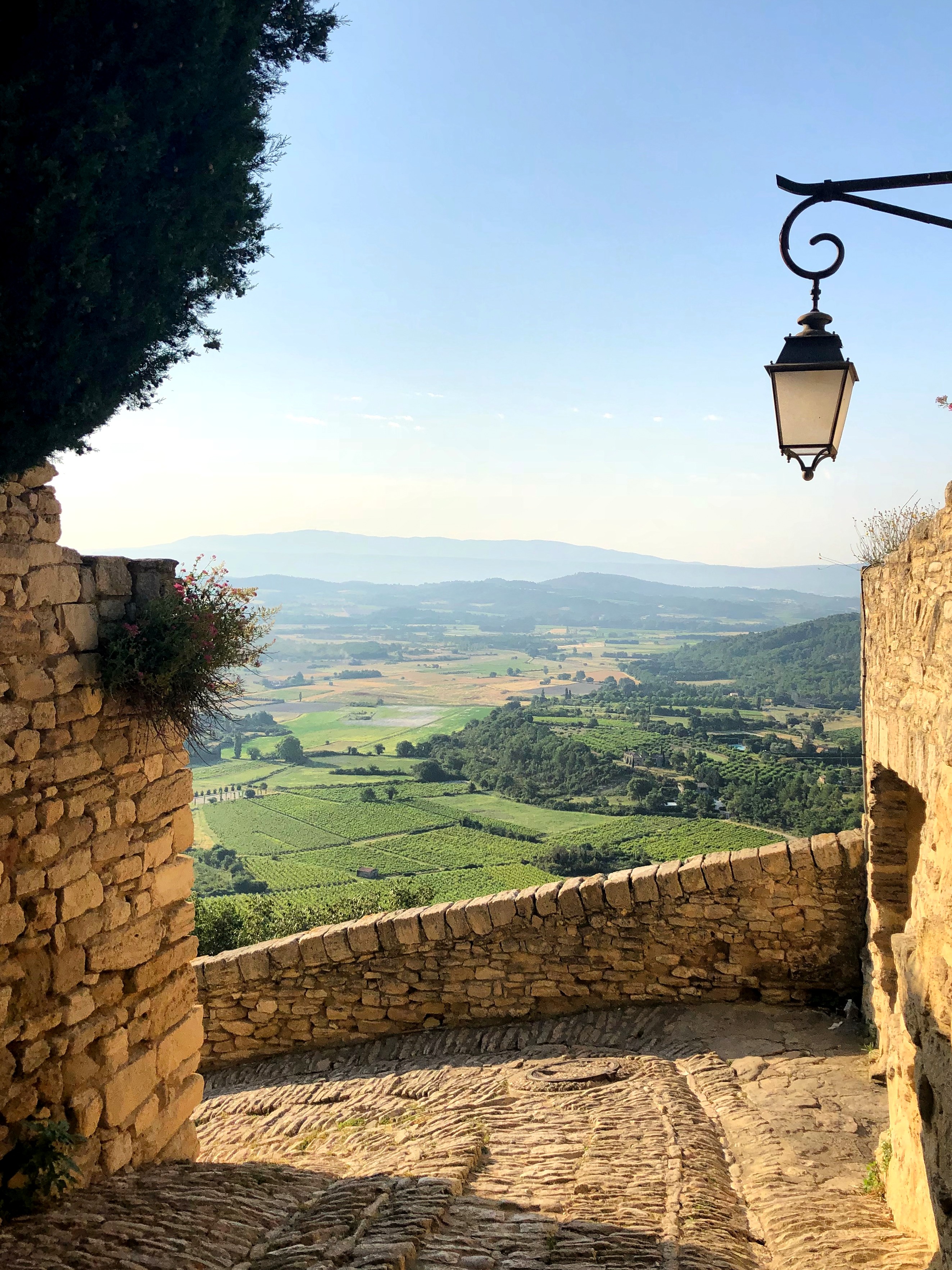 “It seemed an advantage to be traveling alone. Our responses to the world are crucially moulded by the company we keep, for we temper our curiosity to fit in with the expectations of others…Being closely observed by a companion can also inhibit our observation of others; then, too, we may become caught up in adjusting ourselves to the companion’s questions and remarks, or feel the need to make ourselves seem more normal than is good for our curiosity.” ― Alain de Botton, The Art of Travel What if I lose my keys to my rental/car/etc. while I am traveling? No one knows me where I am. I am the only source of income - what if my wallet gets stolen? My passport? As a woman, is it really smart to travel alone? But I will be by myself - won't I become lonely? I don't want to eat alone the entire time - and I love to eat! Above are just a few of the fears I have heard from those contemplating or dismissing solo travel, and at times, some of those fears have danced in my own mind when jetlag was severe and my mind was not being mastered well. And while these are all natural fears to utter if you have never traveled alone, each can be assuaged and should be, after proper preparation, dismissed and not to be worried about. I have written extensively on this topic (see all of the posts at the bottom of this post), so I won't go in detail which has already been shared, but rather share a few thoughts on the wonderful opportunity and insights traveling alone provides the traveler. As I type, I have just returned from a month-long excursion throughout France, as many of you already know. But I am writing that as a reminder. I would advise travelers who may have shaky nerves prior to traveling alone, even myself, to read this post before stepping on a plane for any future trips on our own. Why? Because even I, prior to traveling, especially if my schedule has been busy and harried leading up to the trip, will consider the worst-case scenarios. And every time I return from the trip, I recognize that doing so was energy wasted. All of my energy should be split between preparation and excited anticipation. After all, part of the gift of travel is the time leading up to the trip as studies have shown that it as well can increase our overall happiness. Traveling alone in many ways is a misnomer, as we are never completely alone if we consider our fellow travelers we find along the journey, Mother Nature, and conversations we have with loved ones when we check in from time to time if we choose to do so. The difference is we are never with the same person or persons the entire time which can not only provide variety, but as Alain de Botton shares above, free us from conforming in ways we often do unconsciously. Ironically, when I travel, my barriers tend to come down moreso than when I am at home in ways that allow me to relax and be more fully present. Now that doesn't mean I do not take precautions to protect myself for security purposes, but those are habit at this point when I travel as I have traveled alone for more than a decade and doing so is merely functional as opposed to the emotional barriers that tend to become activated when I am going about my everyday life. The truth is, it was travel that revealed to me this dichotomy of instinctual behavior based on geographical location which caused me to dive deeper into what made me keep my barriers up so adamantly. This examination led me to shift a few things in my everyday life - move away from some friendships, step more intimately into others, etc., and yet this is another example of how travel can improve our lives.~My luggage for the return flight (one more bag was gained!)~ 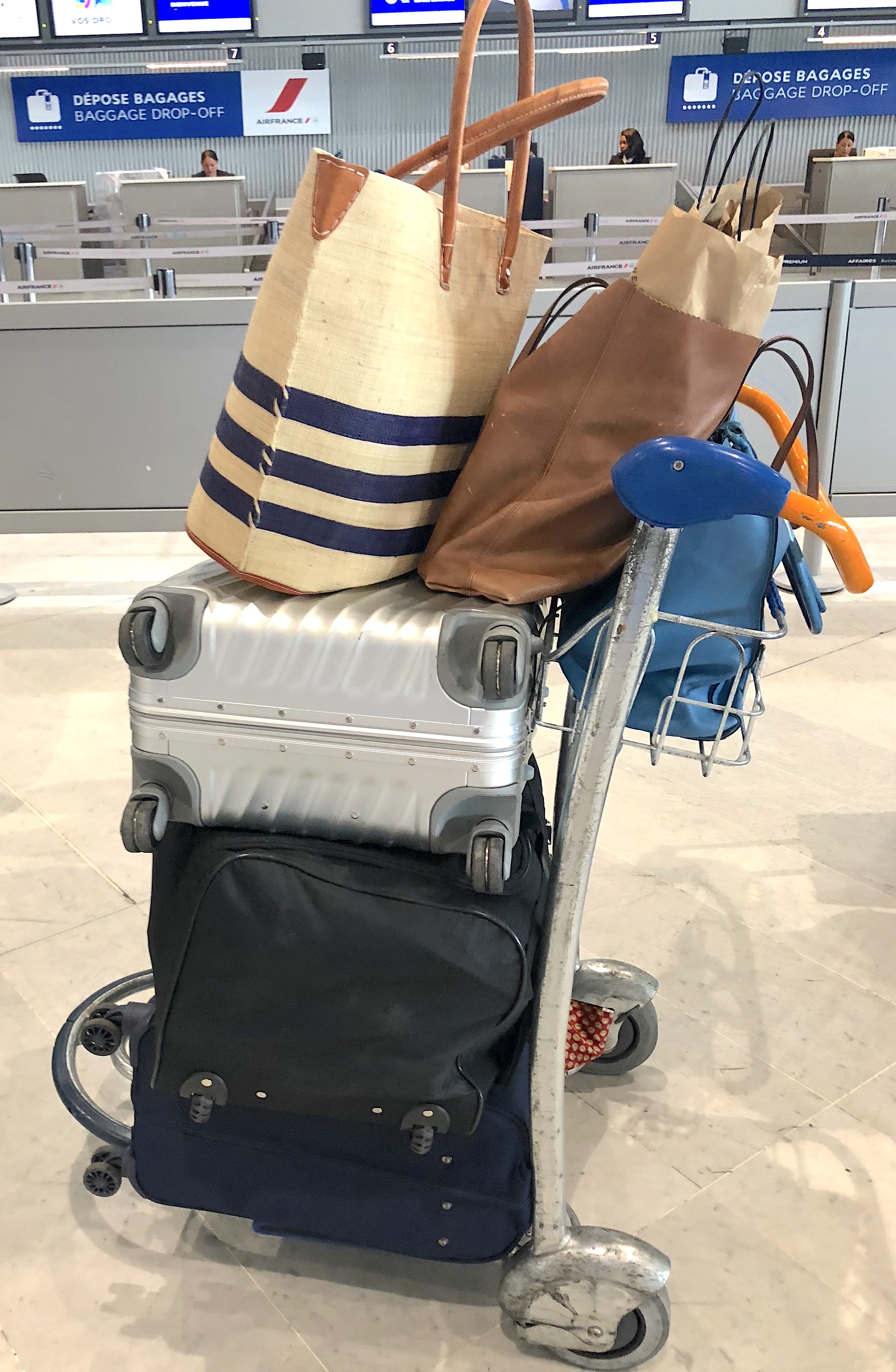 If we consider the headaches that we worry might happen by choosing to travel alone, most, if not all, could just as easily happen when we are traveling with someone or multiple someones. While yes, you will have at least two heads to solve the fiasco, you will also have two heads to step into a fiasco that could cause the headache in the first place. I guess what I am trying to say is that neither is better; they are just different. The common gift of traveling alone that is universally shared is that your confidence increases as you recognize you can do things you perhaps dismissed were possible previously. And this is true. As well, traveling alone, especially if I have not done so in a few years time, reminds me that I need to trust myself. Traveling alone clears away the cobwebs from my intuition, if I have not trusted it as much as I should have, and shows me that I need to stop doubting so often and instead calmly keep listening to its direction and striving forward. And most importantly, traveling alone brings me back to myself, centers me and shakes me awake if that is necessary. If we consider the headaches that we worry might happen by choosing to travel alone, most, if not all, could just as easily happen when we are traveling with someone or multiple someones. While yes, you will have at least two heads to solve the fiasco, you will also have two heads to step into a fiasco that could cause the headache in the first place. I guess what I am trying to say is that neither is better; they are just different. The common gift of traveling alone that is universally shared is that your confidence increases as you recognize you can do things you perhaps dismissed were possible previously. And this is true. As well, traveling alone, especially if I have not done so in a few years time, reminds me that I need to trust myself. Traveling alone clears away the cobwebs from my intuition, if I have not trusted it as much as I should have, and shows me that I need to stop doubting so often and instead calmly keep listening to its direction and striving forward. And most importantly, traveling alone brings me back to myself, centers me and shakes me awake if that is necessary. ~Looking up in Paris in late June: I find that when I travel on my own, my feet follow my eyes. Whatever catches my attention is where I often go, and I don't worry about leaving someone behind.~ 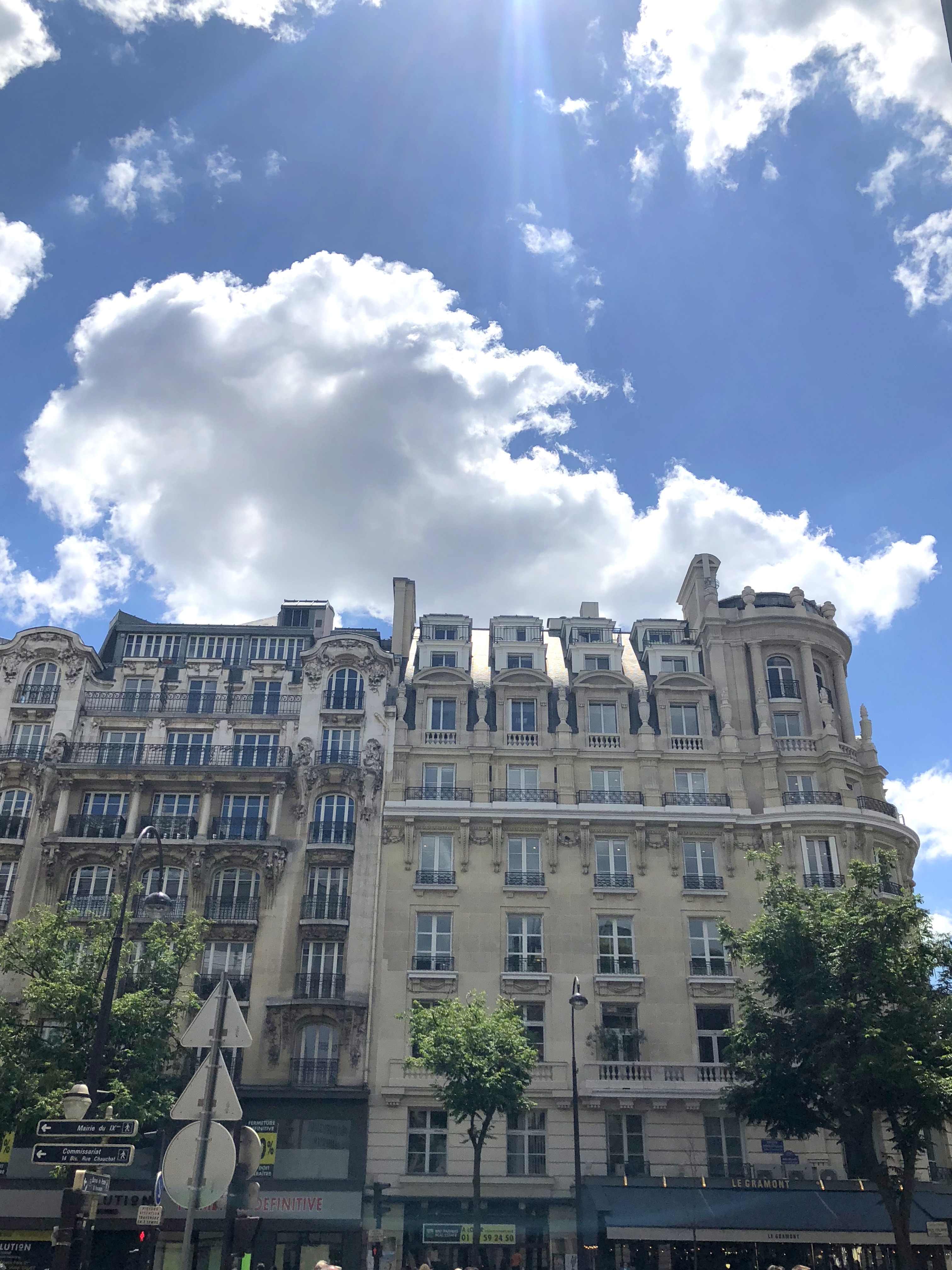 Speaking of the shaken awake part. It has happened in the past that I was shaken, but not to a clear state of what to do upon returning; however, it was a start, and I chose to see it through, continued to shake upon returning until the cobwebs and learned behaviors that were not aligned with my authentic self finally fell away. Such a shedding doesn't always happen quickly, sometimes it has taken years, but if we keep 'shaking' so-to-speak, our truth emerges, and it is then that we look back at our travels with even more gratitude. And gratitude for having traveled alone. There are truths that I have only been able to experience because I was traveling alone. Partly because at different times in my life, I didn't have the confidence or support to speak up enough to those I was traveling with and say clearly what I would prefer to do or at least in a way that yielding an enjoyable experience. And sometimes I didn't know what I wanted to do, so I just followed what the alpha person suggested. But if I had been by myself on those journeys, I would have just followed my curiosities without worrying about what anyone else thought, when I was supposed to return, etc., which is exactly what I do now. Speaking of the shaken awake part. It has happened in the past that I was shaken, but not to a clear state of what to do upon returning; however, it was a start, and I chose to see it through, continued to shake upon returning until the cobwebs and learned behaviors that were not aligned with my authentic self finally fell away. Such a shedding doesn't always happen quickly, sometimes it has taken years, but if we keep 'shaking' so-to-speak, our truth emerges, and it is then that we look back at our travels with even more gratitude. And gratitude for having traveled alone. There are truths that I have only been able to experience because I was traveling alone. Partly because at different times in my life, I didn't have the confidence or support to speak up enough to those I was traveling with and say clearly what I would prefer to do or at least in a way that yielding an enjoyable experience. And sometimes I didn't know what I wanted to do, so I just followed what the alpha person suggested. But if I had been by myself on those journeys, I would have just followed my curiosities without worrying about what anyone else thought, when I was supposed to return, etc., which is exactly what I do now. “The life you have led doesn’t need to be the only life you have.” – Anna Quindlen For me, traveling has led me to the life I want to live. Without travel, I would not be and be doing what I am, today. As Anna Quindlen's quote shares, the life I was leading when the trip began, especially the first trip I made to France (which was by myself), is not the life I live now or will be living in the future.~A journal for your travels is a wonderful way to upon returning, reflect on the person you were when you traveled - where did your mind go, what curiosities caught your eye, how did you feel, why did you feel that way?~ 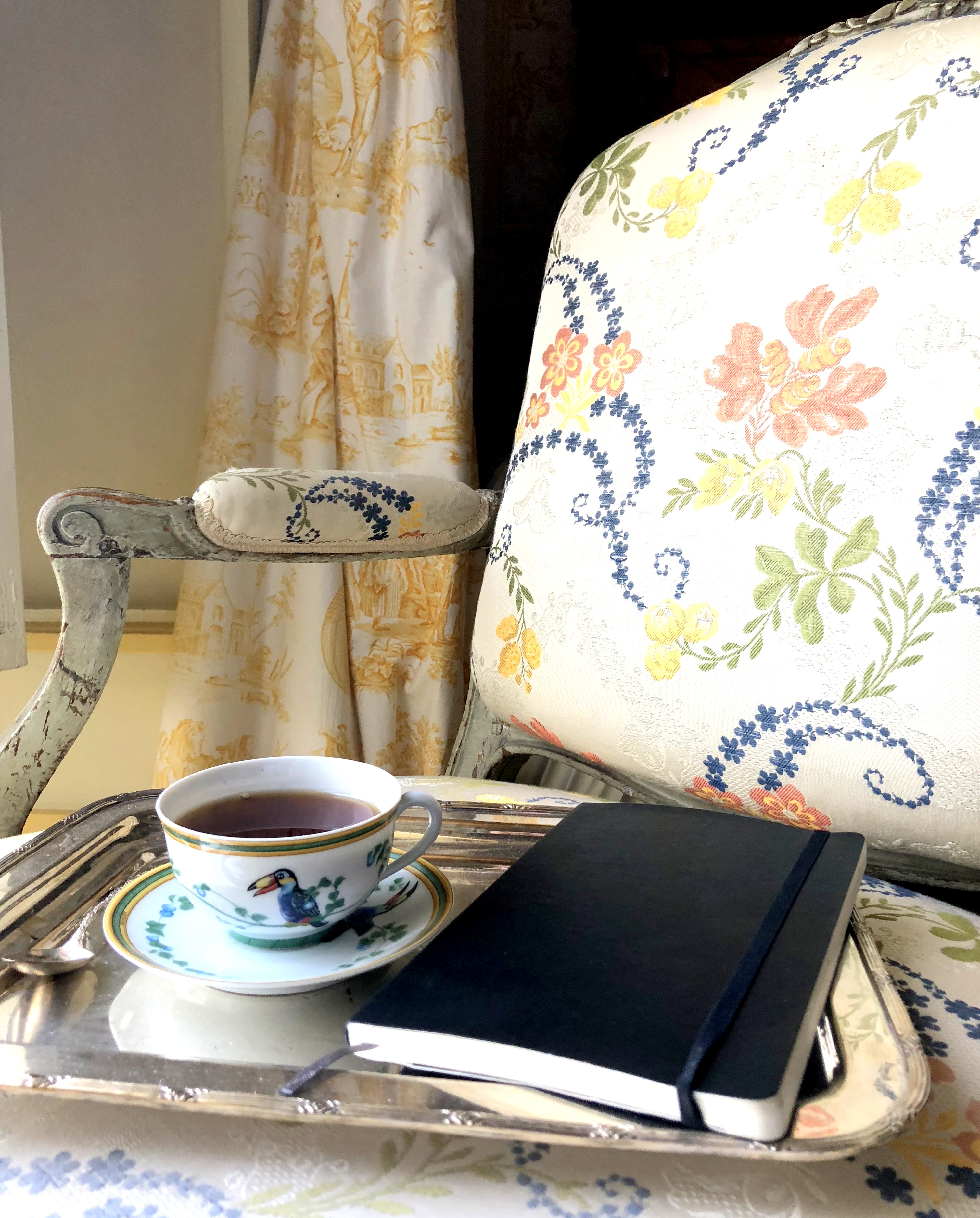 Traveling alone will show you quite quickly where your weaknesses are that can be strengthened. For example, if you immediately are not comfortable in your own company, that is something you can strengthen, and for your best self, you should. As well, if you do not know how to communicate well or engagingly, even if you do not speak the language, perhaps that is a hint that your awareness of the power of clear and effective communication needs to be tended to (which includes body language). One of the lessons I learned on my first trip to France which was in 2000 was to relax, let go of the worry and frazzle that perhaps we have learned when things are not going perfectly, and look around. Ask for help, take a deep breath and know that there will be another train if you miss the one you were scheduled to be riding. More importantly, since you are traveling by yourself, you learn to step outside of yourself. And while yes, you are taking care of yourself, you begin to see that when we only focus on ourselves, our inner world, our potential is limited. When we instead choose to examine "how can I contribute?", "how can I improve so that I can be effective not only for myself but the community I am currently in?", we begin to get out of our own heads and become more present. And when we become more present, the experiences of travel become far more rich and memorable. Traveling alone will show you quite quickly where your weaknesses are that can be strengthened. For example, if you immediately are not comfortable in your own company, that is something you can strengthen, and for your best self, you should. As well, if you do not know how to communicate well or engagingly, even if you do not speak the language, perhaps that is a hint that your awareness of the power of clear and effective communication needs to be tended to (which includes body language). One of the lessons I learned on my first trip to France which was in 2000 was to relax, let go of the worry and frazzle that perhaps we have learned when things are not going perfectly, and look around. Ask for help, take a deep breath and know that there will be another train if you miss the one you were scheduled to be riding. More importantly, since you are traveling by yourself, you learn to step outside of yourself. And while yes, you are taking care of yourself, you begin to see that when we only focus on ourselves, our inner world, our potential is limited. When we instead choose to examine "how can I contribute?", "how can I improve so that I can be effective not only for myself but the community I am currently in?", we begin to get out of our own heads and become more present. And when we become more present, the experiences of travel become far more rich and memorable. ~With moments to engage and moments to observe and moments to reflect~ 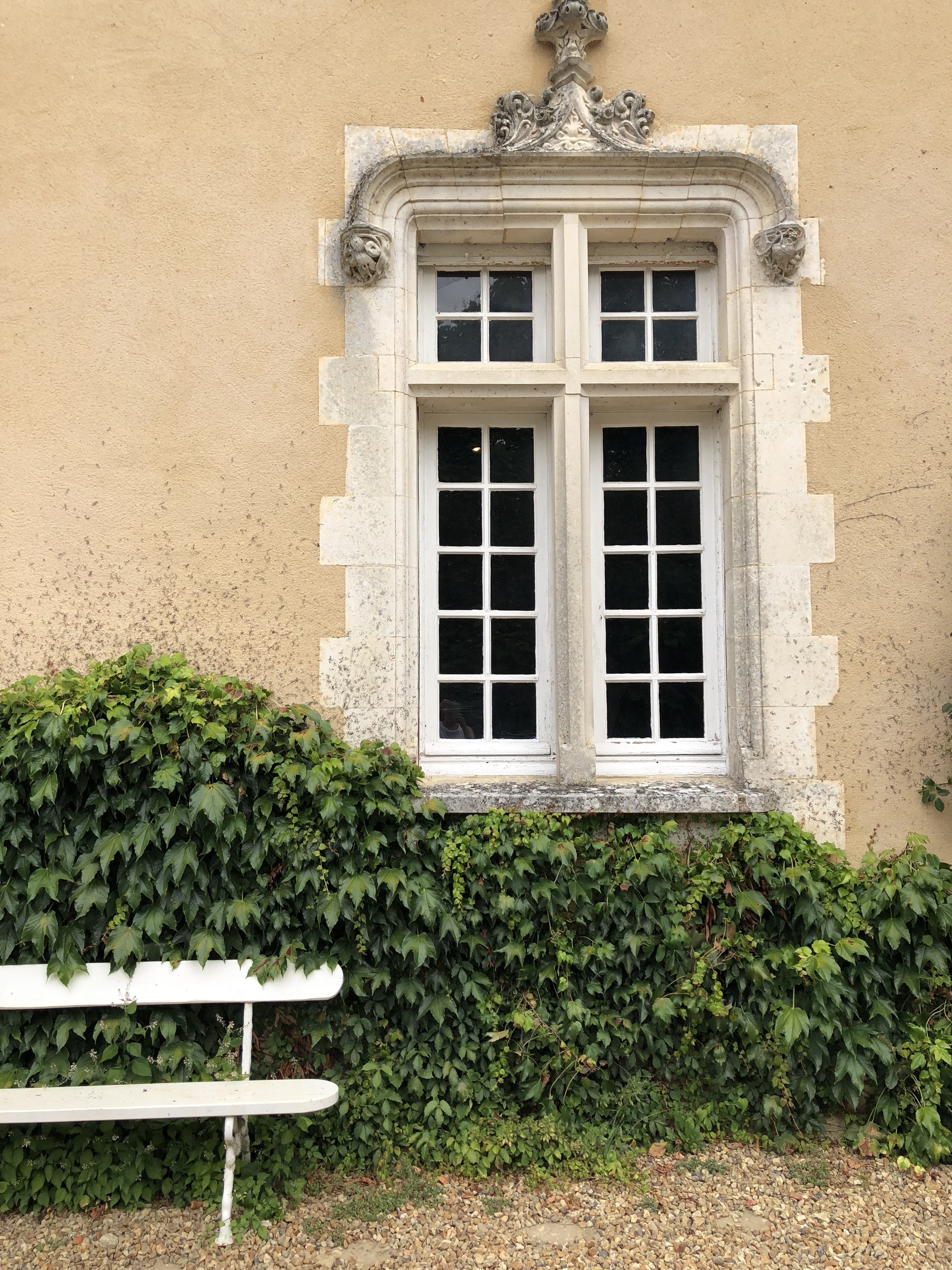 If you are considering traveling alone for the first time, be sure to read the below posts that have been previously written. They will help you prepare specifically and clearly for a successful trip. And if you have traveled alone, but haven't done so in a long time. Or you find yourself settled and perhaps desiring a boost - consider traveling alone. Not only will it boost your confidence if you need it, but it will remind you how amazing the life you life already is or perhaps share with you how to make tweaks and changes that you couldn't see had you stayed in one place. ~SIMILAR POSTS/EPISODES YOU MIGHT ENJOY:~International Travel Prep List, episode #183 ~Why Not . . . Travel Alone? two-part series (part deux here) ~Why Not . . . Travel Luxuriously? ~Order TSLL's 1st Book in audio format from Audible here ~Sign up for the weekly newsletterPetit Plaisir:~Chicken Marsala - view the recipe here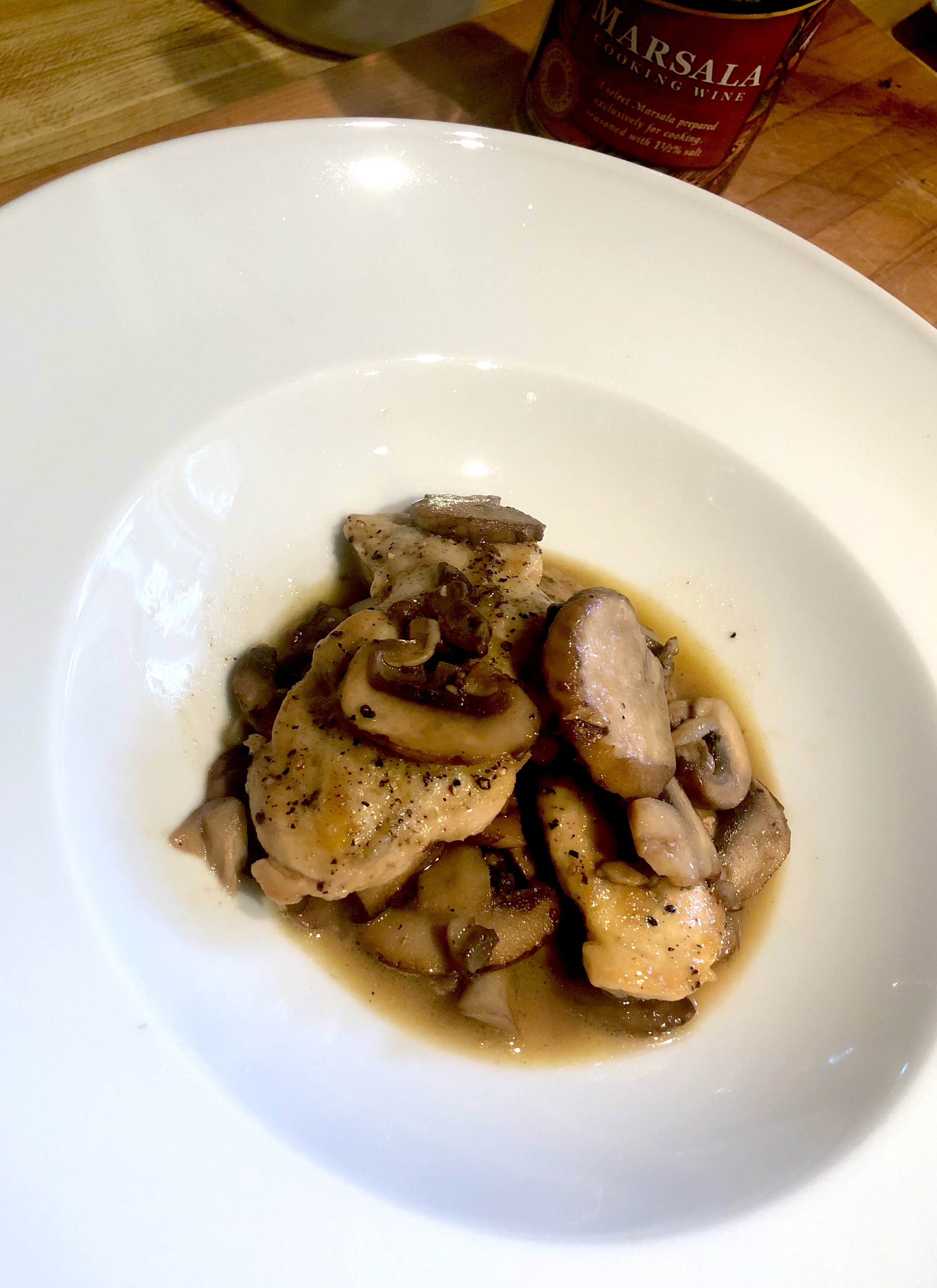 ~SPONSORS of Today’s Episode:
Images: (1) Gordes, France; (2) Charles de Gaulle airport; (3) Paris - right bank; (4) & (5) Loire Valley Download the Episode |
Sun, 29 July 2018
~The Simple Sophisticate, episode #219~Subscribe to The Simple Sophisticate: iTunes | Stitcher | iHeartRadio | YouTube | Spotify |
Sun, 22 July 2018
~The Simple Sophisticate, episode #218~Subscribe to The Simple Sophisticate: iTunes | Stitcher | iHeartRadio | YouTube | Spotify
“A nail is driven out by another nail; habit is overcome by habit.” ― ErasmusWhile traveling during the past four weeks in France, I found that I was finally able to default in conversation to a handful of expressions to, on the most basic level, demonstrate I comprehended what was being said - bien sur, absolutement, parfait, ouai, je comprends, merci, de rein, à demain. Again, as you can see, a very basic level. But, there was no longer a pause before I spoke whenever any of these words or phrases was warranted. My mind no longer had to think, I just spoke. In this instance, I was tickled. Finally, an aspect of the French language, after many years of sporadic studying, was becoming a default in my brain. A muscle had been strengthened to the point of habit. But, again, my responses were basic, simple, surface. "Doubt the default." When I heard Adam Grant utter this simple, concise, alliterative statement in his TED Talk about original thinkers, my attention was captured. It happened three years ago upon arriving in Bend and moving into my new home that I ran into a new neighbor. The circumstances were we didn't know each other, simply put, and I uttered in conversation with this perfect stranger, "trust me, I understand what you mean." At the time, I didn't think about that phrase before I said it, I didn't really consider the weight of such words - "trust me", I just said it out of habit. Default. And I wouldn't have even reflected upon this fact had the woman engaging me in conversation not said, "I don't know you to trust you." The topic of our conversation was about our dogs, but the truth was, she didn't know me, and she was fully present in the conversation. While I thought I was, the words I chose said otherwise. Ever since this conversation, I have thought carefully about what I say in conversations out of habit, filler, silence-enders, space holders. I have done my best to eliminate words such as "like" from my informal speech after I recognized how many times I would say it when, had you asked me, I would have guessed the word never entered into my syntax. Aside from the words I chose, I began to dive into my living habits, my thinking patterns, and it was with my trip to France that I recognized many cultural defaults as well that I had not even considered addressing. Quickly, another word for "default" is a habit. By definition, a habit is something that frees our mind up to focus on other tasks. So as long as the habit is helpful and contributes to the quality of the life we desire, a habit is a very good thing. Selecting water as your drink of choice, looking for the positive, smiling instead of frowning, wearing the same uniform to work to eliminate wasting time in the morning - all very helpful habits. But habits, defaults, can also be hindering our ability to live a better life, a more thoughtful life, a more engaging life, especially when we don't even realize we have these unhelpful defaults. Below I'd like to share with you a list of potential defaults already in your life inspired by what I saw, experienced as well as caught myself doing without thinking. 1. Not taking a grocery tote into the marketIn France, when you go to a supermarket, they will not provide you for free with a plastic or paper bag to place your groceries. If you, as I did on my first occasion, do not bring in your canvas tote, market tote, or anything to carry your groceries, you will have to pay for their grocery bags (ones you can use on your next visit). The price was quite small - ten centimes - but it caught my attention immediately. A good habit could easily become ingrained in my memory of bringing a grocery tote to the store if I knew I would have to pay for a new bag each time I shopped throughout the week. (In one instance, I simply placed all of my groceries into my tote - handbag; and I also saw many people bringing their market baskets to the brick and mortar stores as well - multi-purpose.) 2. Expressing a negative energy during first impressionsWhen I travel, I love to listen. When I listen, I am better able to observe, and it also enables me to see more clearly, and more accurately, someone's true nature. What do I mean by this? Having had the opportunity to meet many people from all different walks of life, it was often the first impression that upon reflection was the most accurate to their true disposition. When we don't know someone, and the environment is safe, what is your first reaction when you meet them? Most of the people I met expressed warmth which made those few who did not stick out like a sore thumb. Because it is the first impression, their negative or positive energy has little or nothing to do with me, and much more to do with where they are in their life at that moment. 3. Driving faster than necessaryDriving on the roads in France, the country roads, the autoroutes and everywhere in between, it became quickly apparent that most French drivers drove the speed limit. I later had a conversation with Sharon Santoni about the laws of the road and my observation, and once she explained the drivers' point system (each Euro driver begins with 12 points and they can be lost for speeding (automatic surveillance along the roads), using a cell phone, etc.), it became clear as to why the pace of the roadways felt very civilized. No matter where in the world you drive, it would be interesting to consider the defaults you adhere to when you are behind the wheel. What is deemed acceptable, what is not? Buckling up - good. Glancing at your cell phone - bad. Driving a manual car during my entire trip which was something I am accustomed to, but my current car for the past four years here in the states is not a stick, upon arriving home, my left foot automatically began looking for the clutch without success. My brain had defaulted in four short weeks to expecting to use a clutch. This is good news. Not only can we change the defaults that are not helping us, but they can be "reprogrammed" quite quickly with frequent, repeated practice. 4. Not greeting the shop keeper, artisan, taxi driver, etc.The many travel writers and travelers of the world, have done a magnificent job of sharing the importance of saying "bonjour" if one is in France, but in nearly every other country in the world as well, upon entering any business, vendor, etc. in order to begin to set a cordial tone. From time to time, I would notice a traveler, in my case, I zoomed in on Americans, but that's not to say other world citizens don't make the same mistake as well, immediately begin making an inquiry of the proprietor without extending a salutation. And while often, the staff would attempt to help them, an opportunity to build a better rapport was missed. I began thinking about this simple habit of focusing first on the human connection before homing in on the task which brought us to the store, market, etc. The difference is there are feelings and emotions involved that must be considered when we choose to first focus on making a human connection. And when we do this, we are being present. No, we do not know how the interaction will go, but the chances that it will go well are greatly increased. 5. Assuming a market will always be openI quickly learned that I needed to plan my grocery shopping well before my stomach became hungry. While this detail was something I remembered from my previous trips, staying in vacation rentals, I usually wanted to cook my own meals, so making sure a market of some sort was open (restaurants are usually opened each day of the week for at least lunch and dinner) was a shift from my approach in the states. In the states, if I have forgotten an ingredient for dinner on a Sunday, I don't think twice about heading to the market for a quick pick up. Having to know in some capacity that I had what I needed for my meals in advance also enabled me to just relax and enjoy a leisurely Sunday or any afternoon during the week as the outdoor markets wrapped up around 1pm and most restaurants in the small towns shut down between lunch and dinner. 6. Eating the same food year roundIn Provence, the melons were nearing their peak ripeness, but green asparagus season was all but over. White beans were a treasure to be purchased and savored during these months strawberries were to indulge upon like candy. However, if I were to return in November, as most of the markets are opened year-round, I would see completely different selections. Now, we know the seasons offer different fruits and vegetables, even seafood, but it can sometimes become easy to forget when we shop in a supermarket and only stick to the same food each trip. The appreciation for the food that only comes once a year is something we can celebrate in our cooking as we dine on the rich flavors. In so doing, we actually do help our waistline as we become satiated more quickly and do not overeat as we are eating real food with natural, wonderful flavor. 7. Perfect and impersonalThe idea of a perfect home, a perfect outfit, perfect hair, a perfect life, as we know is a futile pursuit. And to this point, most intensely, it was the decor that woke me up throughout this trip as I appreciated the signature touches made available by the treasures one can find at the many brocante markets. Now this is not to say, one cannot decorate a home outside of France without the access to brocantes. Absolutely not, but what I think is tempting is to make everything look ideal immediately in our homes - paintings, furniture, tabletop vignettes, etc. And as Sharon Santoni and I were talking, a beautiful home that is the sanctuary for the inhabitants is one that has layers of unique and thoughtful decor choices, and these layers take time. When I stepped foot onto Sharon's property, enjoyed meals with her family, and stayed in her guest cottage, it was immediately clear that they lived there. I couldn't purchase her decor details", but I could be inspired by them because it was more than the things, it was the stories that came with them. 8. Speedy and surface conversationsAs I shared at the beginning of my post, it can be easy to say certain catch phrases without really thinking about what the words themselves mean. While idioms exist in every culture, sayings that mean more than what they are literally saying, it's not the idioms I am talking about here. When we are in a different culture that asks of us to reach beyond the language we are most comfortable with, often the conversation can be slow. While this may be frustrating as we want to talk quickly like locals, it shows thoughtful care. We want to make sure what we wish to say is said and not something that will offend or confuse. I find that sometimes in conversations we say more words than our necessary. Just as in every other arena of our lives, quality over quantity. When we choose our words carefully, we can say so much more. Excessive use of superlatives (best, largest, toughest, most amazing, prettiest) waters down the actual compliment if all you use are superlatives for something you either love or loathe. Precise words and thoughtful timing of when we engage in conversation, demonstrates we are listening, we care and we are trying to understand. 9. Drama is necessary and thus inevitableInitially, it was my lack of access to the regular news sources I look to or listen to on a typical day when I am in the states that made me realize that I had been accepting the noise of problems, clashes and pain as normal. But even with the shows and books we read, we can come to expect, even look for, the clash, the conflict, the drama, that must be there somewhere. The truth is, often things to work out. In fact, it is human nature biologically to remember the instances that didn't work out more readily than the times that did for survival. But when we accept this biology, we ignore that when we are aware of why this happens, we can shift our expectations, our reactions and instead rest more easy, enjoy the steady, even balance of our lives that go well quite often. Why look for the drama when it truly doesn't need to be there? 10. Assuming an incapabilityI can't travel alone. I can't drive in another country. I can't live without [insert something that you cannot travel with]. Often when we travel we discover something, if not many, things about ourselves we were not consciously aware of. Many of these discoveries are awesome, exciting bits of information that awakens us to our best selves, but sometimes we discover that we have been limiting ourselves unnecessarily. If our default in our minds is "I can't" instead of even just "I'll give it a shot" when a new task or new experience is placed in front of us, we may miss out on the most beautiful London plane trees lined country roads in France (see below), or meeting Walter Wells (I ended up after attempting to walk to class at Patricia Wells' cooking class the first night, getting lost, and ended up calling Walter who came and found me and picked me up in his car to take me to their property for dinner - we had a lovely conversation). We often sell ourselves short regarding what we are truly capable of doing, and we especially do so when our default setting is immediately "I can't". Yes, you can. You may have to do a bit more homework, save a bit more money, or have some patience, but "I can't" is often more an expression of hoping that we could so badly but we just don't know how. "Default choices often remain unchanged for no reason other than being the default, either because of this lack of information or humans' status quo bias." —Marvin Ammori Adam Grant was right, we should doubt our defaults because when we don't we are either living unconsciously or not living as full of a life as we could if only we had more information to make different choices and take different actions. Kristin Armstrong states it frankly, "We either live with intention or exist by default." When we live with intention, we are living well. We may not have success on our first attempts at speaking differently, acting differently or engaging differently, but we are doing it out of a conscious choice to live more authentically, thoughtfully and more engaged with the world we are living. While traveling to France made this concept of living with defaults quite glaring to me, we don't have to travel outside of even our own town to know that we may have defaults that are not serving us or defaults that are limiting our full potential whether it be in our appreciation of life, our relationships, even our success at work. All it takes is a choice to reflect and ponder, why do I greet people the way I do? Is that the energy I want to extend? If so, that's awesome, but if you recognize you want to make a change, you can do that too. When we doubt the default, we are choosing to be selective about the habits we allow to be habits in our lives. It's when we do not know we have these habits that we step on our own toes, so to speak, and trip ourselves up without realizing we are the ones slowing our progress down. And that is great news, we each have the skills and the opportunity to stop tripping and start striding into the life we love living. ~SIMILAR POSTS/EPISODES YOU MIGHT ENJOY: ~20 Ways to Live Like a Parisian, episode #127 ~15 Everyday Habits to Live a Life of Contentment, episode #93 ~Why Not . . . Live a Life of Quality? ~Listen/Read more French-Inspired podcast episodes here. ~Learn more and subscribe to TSLL's weekly newsletter here. Petit Plaisir:~Filt shopping bags (made in Normandy, France)
~Sponsor of today's episode:
|
Sun, 15 July 2018
~The Simple Sophisticate, episode #217~Subscribe to The Simple Sophisticate: iTunes | Stitcher | iHeartRadio | YouTube | Spotify~Dining at La Couronne (the location where Julia Child enjoyed her first French meal in 1949). Check out more images in my IG Highlights - FranceTripP2 I look forward to writing detailed posts on all that I experienced during my month long trip in France this summer. Look for a majority of the posts to be shared during TSLL's annual French Week which begins on Sunday August 12th; however, a few will be posted prior to this date as I have an abundance of content. TSLL will be taking a week off to settle back into my life in Bend beginning today and resuming with a brand new episode of the podcast and the regular weekly post schedule on Monday July 23rd. ~Catch up on all of my #TSLLFrance2018 moments on Instagram (and be sure to check the Highlights as well). ~Listen to the previous episodes from France below: ~episode #216, French Trip Travel Musings, Part Deux ~episode #215, French Trip Travel Musings, Part Une - Why Not . . . Make the Effort? Petit Plaisir:~Fresh goat cheese drizzled lightly with fresh, high quality olive oil, paired with a fresh baguette to be enjoyed after the entrée course of a meal. Below enjoy a few images from Sharon Santoni's cottage where I stayed over the past weekend. Sharon will be sharing tips about her approach to decor as well as details about the many tours she gives throughout France when TSLL's annual French Week takes place beginning August 12th. |
Sun, 8 July 2018
As my travels continue in France, Part Deux of the travel musings-themed episodes is shared today as I recorded the episode while walking in the country amongst vineyards, olive trees and under the brilliant blue sky of Gordes, Provence. Be sure to tune in as I talk about topics that have been on my mind these past few weeks. Some have to do with travel and some have to do with everyday life and how to elevate it. I also share a few upcoming posts that I will be sharing in the coming weeks and months inspired by the trip. Below are specific topics and links to deepen the discussion. Thank you for tuning in and have a great week. Bonne journée! ~Follow TSLL on Instagram (@thesimplyluxuriouslife) ~The Simple Sophisticate, episode #216~Subscribe to The Simple Sophisticate: iTunes | Stitcher | iHeartRadio | YouTube | Spotify~Traveling Alone
~3rd Annual TSLL French Week - Sunday August 12-19, 2018 ~How to Create a Healthy Approach to Staying Abreast of the News, episode #187 ~How to Create an All-Around Healthy Life, episode #208 ~Daily Simple Luxuries (to enjoy while traveling or at home in our everyday lives)
~Listen and Catch Up! French Trip Travel Musings, Part One, episode #215 BELOW: images captured like walking and talking (taping episode #216 on July 7, 2018) just outside of Gordes, France.
~the sandals I have been wearing constantly during this trip - les tropiezennes. Recommended to me by author M.L. Longworth (who I had the opportunity of meeting in Aix-en-Provence this week - a detailed post will be coming soon on my excursion to this fantastic French city), these sandals are made in the south of France and can be ordered from the states - which is what I did prior to traveling. ~Tour the vacation rental I have enjoyed this week while staying in the Luberon region. You too can rent it as well! Click here for the entire tour as well as expert decor tips from the owner.
~Sign up for TSLL's Weekly Newsletter (delivered every Friday) Petit Plaisir:~Enjoy an aperitif and nibbles before a meal or with friends for a casual gathering.
~SPONSOR of Today’s Episode:
|
Sun, 1 July 2018
~The Simple Sophisticate, episode #215~Subscribe to The Simple Sophisticate: iTunes | Stitcher | iHeartRadio | YouTube | Spotify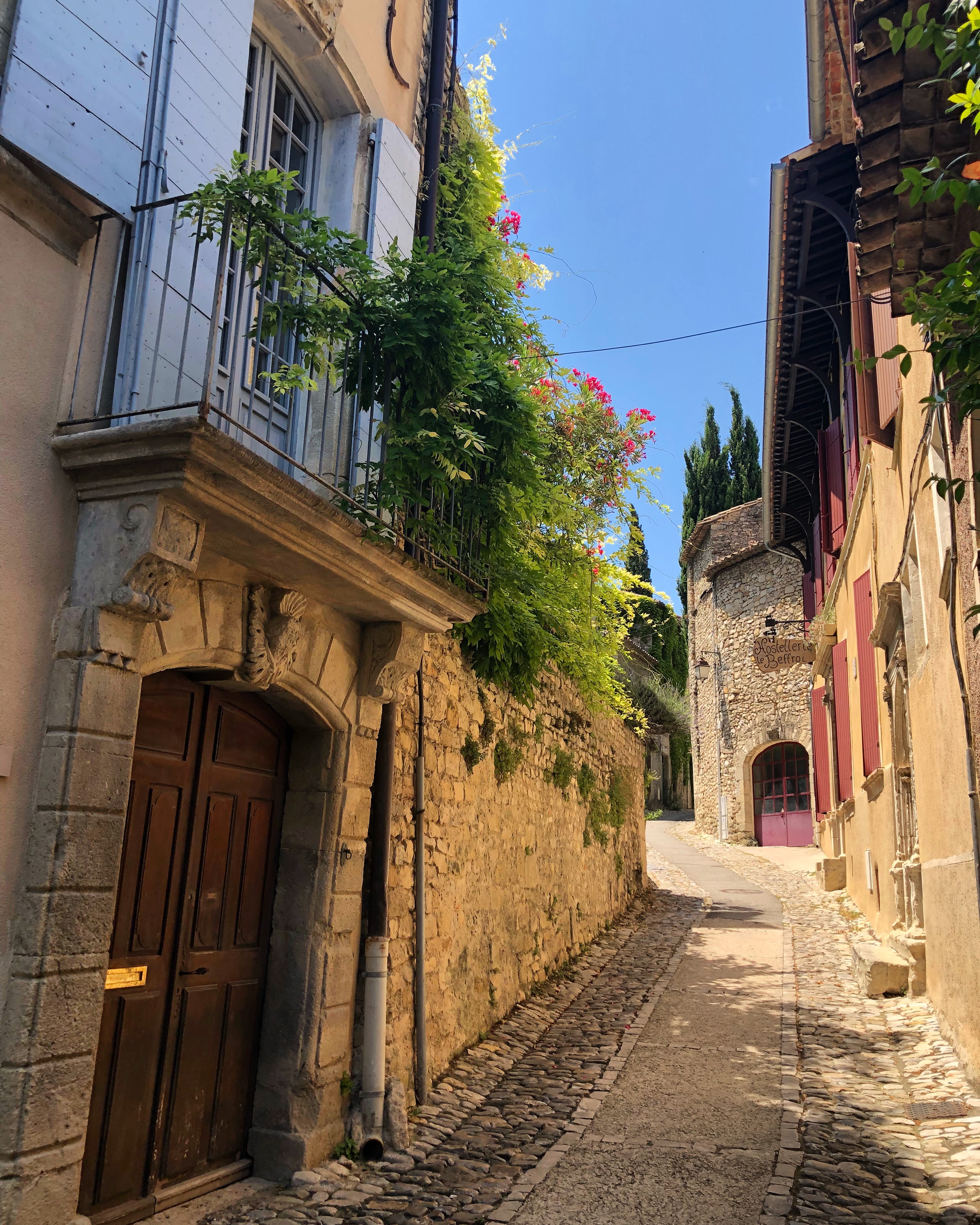 "It's worth the effort." —Patricia Wells(The following episode was taped while traveling in Provence, France, using a handrecorder. Please excuse indulations in volume.) The legions of birds and their signature melodies, the playful butterflies that promenade amongst our meals, the clock tower reminding us that indeed we are not dreaming and the vintner on his tractor tending to his vines. The sounds of Provence. More specifically, the sounds of Vaison-la-Romaine. As my fellow classmates and myself sat down for our final lunch together with Patricia and Walter Wells concluding a week long experiential cooking class, the words above were shared with the group. Speaking not only of the effort to plan, prepare, and shop at the market, but also to have the patience with our lives to curate them carefully so to provide the fertility for a beautiful life to grow, the Wells demonstrated that a good life can be simple, slow and yes, thus absolutely luxurious. In this particular moment the effort made by the Wells was to welcome a group of people that would appreciate in their own way the gathering as well as the food (which was exquisite and seasonal). Traveling abroad to a country which doesn't speak a language we know well can be intimidating, and for some seemingly dream crushing. But it need not be. In fact, as a language teacher, when the words are removed or pared down to the essentials of living an everyday life (thank you, please, how much, where is, I love, etc.), we are invited to see the world through a different lens. We begin to observe actions far more carefully, to value the importance of kindness and thoughtfulness. When we rely only on our words to navigate in this world we forget how influencial our body language, our facial expression, our tone can be on any given situation. Yes, even a smile can be sinister or sincere, and if we are studied in the skill of physical observation, we can ascertain the slight and subtle difference. Yes, undoubtedly, words are powerful, and to live well in a civilized society such as ours and much of the modern world, knowing how to communicate well in the language of the country and community in which we live is fundamental, but it isn't the only skill we should practice and improve regularly to build the relationships we want and need in our lives. So if there is another world (country) you long to see, to experience, to taste, but the language barrier is currently the dilemma, fear not. Ironically, I have found that the best way to pick up a language, for it to stick in my long-term memory, is to be amongst as it is used in the world. It has been with each trip, moreso with each subsequent trip, to France that while I do not understand 60-70% of what is said, I understand more and more and feel less of someone on the outside. What we fear is not knowing French, but what we long is to be amongst the French culture. What better teacher than a Francophone country? When you step into your fear, the language will gradually come. Not an immense amount, but in spurts and stalls. Give yourself the gift of one more language, even if you speak it poorly (which I do when it comes to French) because as the Chinese proverb reminds "To learn a language is to have one more window from which to look at the world" and as the Czech proverb teaches, "You live a new life for every new language you speak. If you know only one language, you live only once." And so if we each have one more window to broaden our perspective and provide a deeper understanding of the world and then one more life, how rich and wise are we? What does making an effort look like when it comes to our dreams? For the Wells it was purchasing a farm in the hills of Provence, remodeling for decades, little by little and choosing, taking the risk, to share their lives, a glimpse, but an intimate glimpse, eight weeks a year (one week at a time) with strangers from around the world. Effort. Let's take a look at other examples of effort: 1.Waking up early to begin the day with more time than needed so you do not have to rush 2. Saving each month money for retirement 3. Choosing to get to know yourself 4. Recognizing you can grow and becoming a student of the skills you can learn 5. Not doing as others do, traveling every weekend or every summer and instead, saving, planning or living where you love calling home. 6. Being thoughtful in your relationship building 7. Taking the time to understand someone who is good, but communicates or lives differently, in order to strengthen and express love 8. Giving yourself permission to feel what you feel, but also recognizing emotions are like the weather, not the climate - temporary. 9. Taking care of your health and body 10. Strengthening the muscle that is your mind"It is astonishing how much enjoyment one can get out of a language that one understands imperfectly." — Basil Lanneau GildersleeveAs much as we are advised and even tell ourselves to live in the moment (heck, TSLL talks regularly about being present), we are given the gift of perspective as human beings. And it is through effort that dreams can be realized that are worth savoring upon not only attaining them, but making the journey towards them. My trip to France as I mentioned a few weeks ago has been years in the making. I might even suggest it began the moment I made my first month long journey in 2000. In some ways my trip to France is part of a larger journey toward other visions I have for my life, so in many ways our lives contain dreams within dreams that we pursue. Which when you contemplate this composition creates a beautiful life quilt consisting of many dreams that bolster and provide foundation for one another. Effort is worth being given, and your dreams are worth being pursued. Have the patience to let them fertilize, mature and grow when they have the strength to emerge. This requires of each of us careful awareness, a flexibility, but also a courageousness. All of these are skills; therefore, we all can learn them and use them. Bonne journée from Vaison-la-Romaine, Provence, France. ~SIMILAR POSTS FROM THE ARCHIVES YOU MIGHT ENJOY:~Everyday Life in Paris: A Fashion Show in the Palais-Royale (I was not invited) ~Back to Paris (summer 2018) ~9 Life Lessons From French Women about Women ~View allFrench-themed podcast episodes of The Simple Sophisticatehere. ~View allTSLL French-themed blog postshere. ~Follow TSLL on Instagramto see all of the pics from my France trip. ~Sign-up forTSLL's weekly newsletterand never miss a post or exclusive news (delivered each Friday to your inbox)!Petit Plaisir:~My Twenty-Five Years in Provence: Reflections on Then and Now by Peter Mayle (his final book)If you are just beginning to read Peter Mayle's work (he has published 14 books, 7 of which were novels), begin with the memoir that caught the world's attention A Year in Provence, and if you love cozy mysteries set in France, begin with The Vintage Caper (2009) Sam Levitt detective series, there are four in the series. ~Visit Peter Mayle's website ~Read my full review here - Peter Mayle's Love Letter to Provence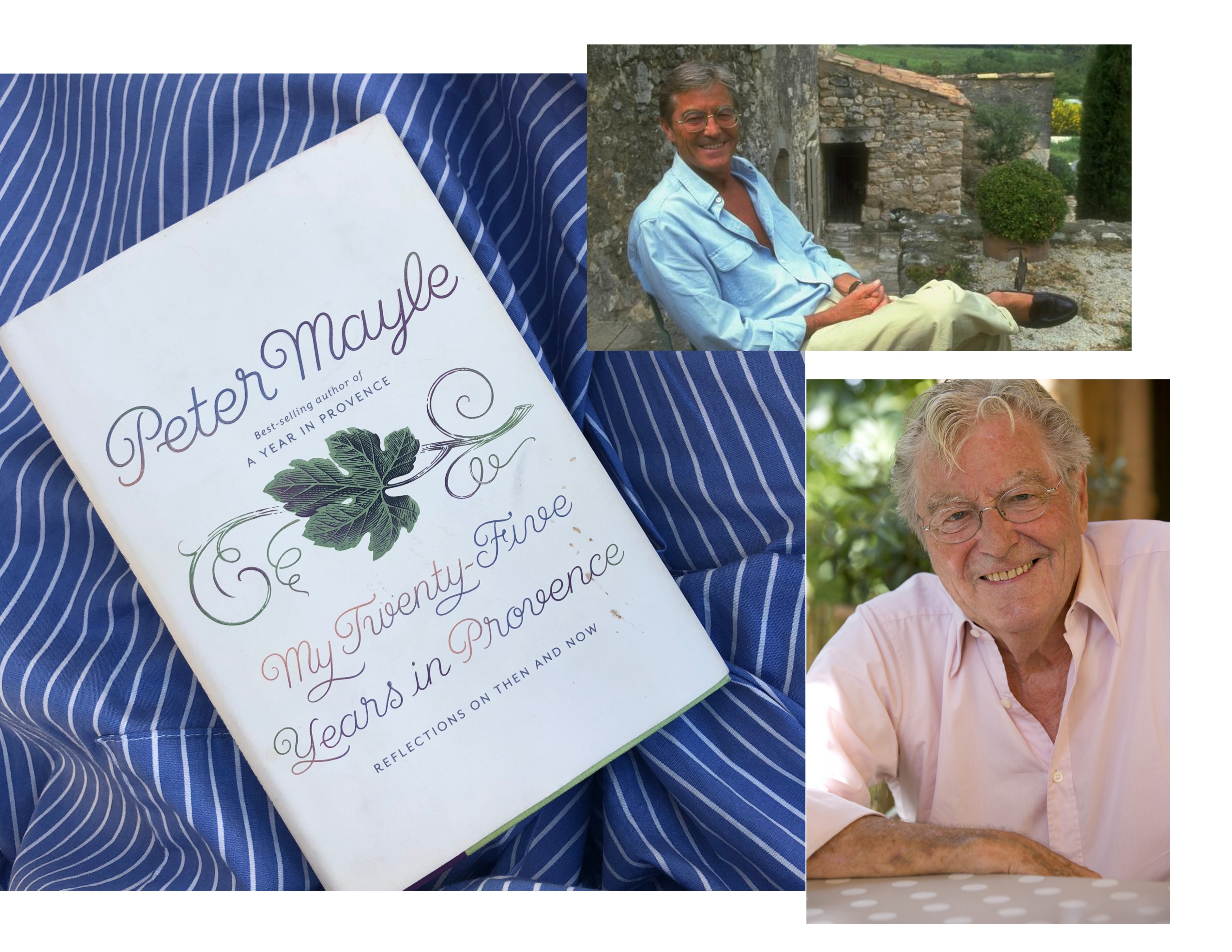 ~Sponsor of today's episode:
|
Sun, 24 June 2018
~The Simple Sophisticate, episode #214~Subscribe to The Simple Sophisticate: iTunes | Stitcher | iHeartRadio | YouTube | Spotify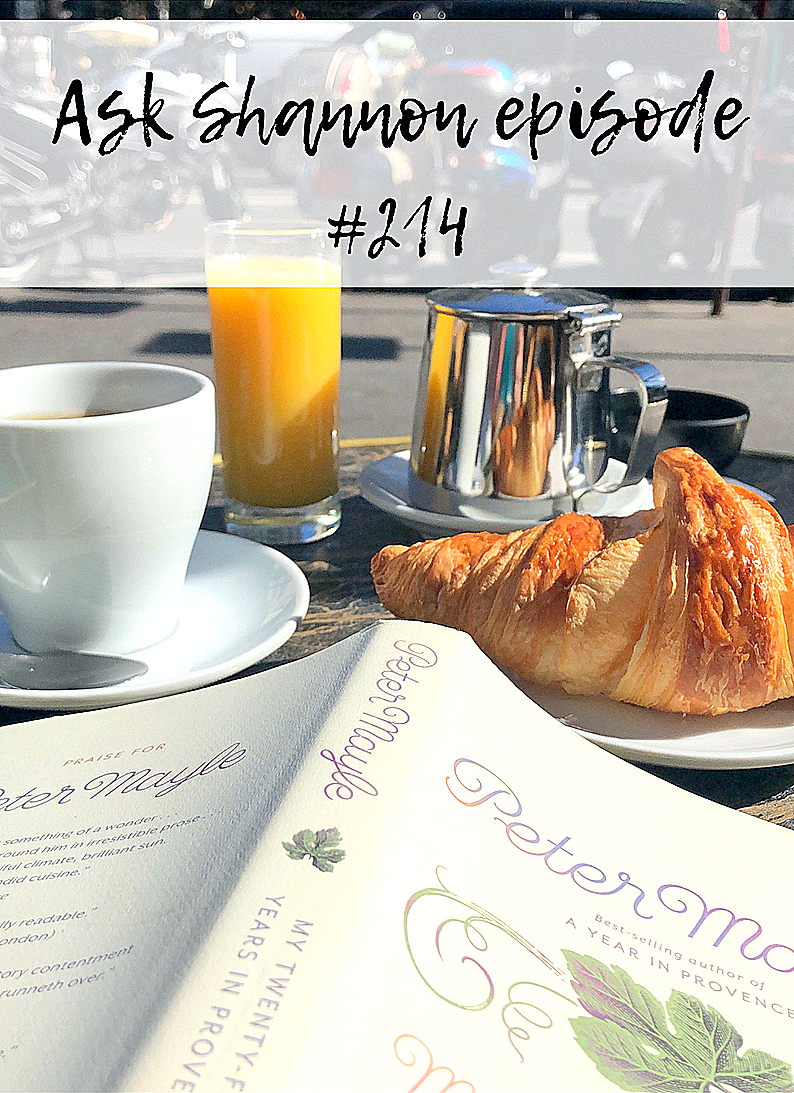 Today's episode is over one hour of Q & As. Questions from TSLL readers and podcast listeners and answers from me, Shannon. :) This annual episode began last year, and was so well received (the most downloaded episode of the year), it has returned. I do hope you enjoy and thank you to every listener who emailed me your questions. Below you will see a list of topics that are discussed and as well as more specific points. And, the final Q & A is a lengthy excerpt from TSLL's new book, so have a listen if you've already ordered your signed copy or would like to. Be sure to tune in to the episode as I go in-depth on each topic. The links included in today's show notes are recommended to further what is discussed during the episode. I do hope you enjoy the episode, and if you'd like to listen to last year's inaugural episode, have a look/listen here (#161). I also did a mini Ask Shannon episode in January 2018(#191) in which traveling to Paris was one of the topics (what to pack), favorite totes and much more. Health & Beauty: Today's episode is over one hour of Q & As. Questions from TSLL readers and podcast listeners and answers from me, Shannon. :) This annual episode began last year, and was so well received (the most downloaded episode of the year), it has returned. I do hope you enjoy and thank you to every listener who emailed me your questions. Below you will see a list of topics that are discussed and as well as more specific points. And, the final Q & A is a lengthy excerpt from TSLL's new book, so have a listen if you've already ordered your signed copy or would like to. Be sure to tune in to the episode as I go in-depth on each topic. The links included in today's show notes are recommended to further what is discussed during the episode. I do hope you enjoy the episode, and if you'd like to listen to last year's inaugural episode, have a look/listen here (#161). I also did a mini Ask Shannon episode in January 2018(#191) in which traveling to Paris was one of the topics (what to pack), favorite totes and much more. Health & Beauty:
Petit Plaisir:~The New Paris podcast with Lindsey Tramuta (Lost in Cheeseland blog) ~inspired by her latest book The New Paris (2017) ~SPONSORS of Today’s Episode:
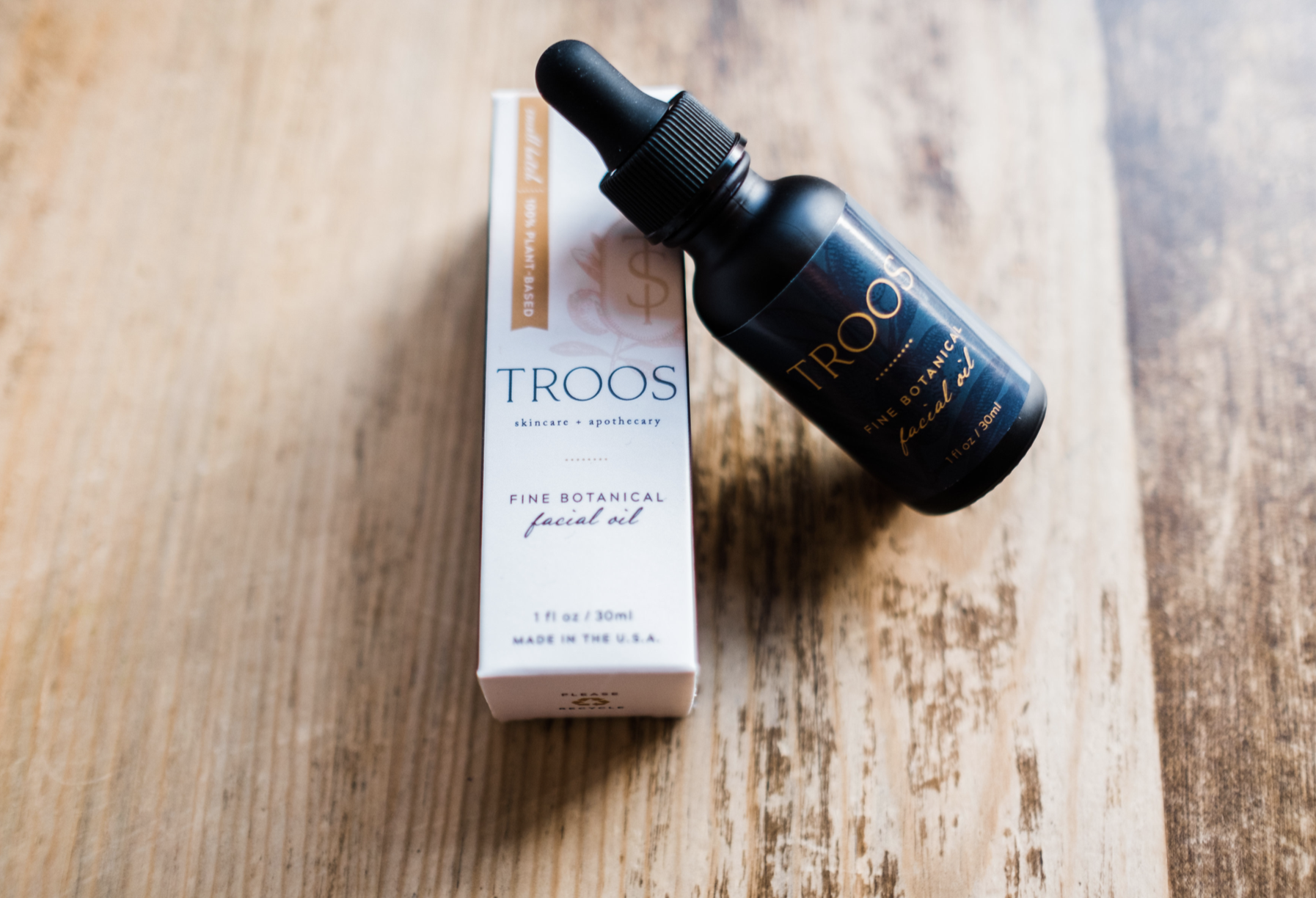
|
Mon, 18 June 2018
 ~The Simple Sophisticate, episode #213 ~Subscribe to The Simple Sophisticate: iTunes | Stitcher | iHeartRadio | YouTube | Spotify
"Alone, we can plumb local markets and examine their wares closely. We can breathe in and relish the flavors in a sauce, or the coolness of a pitcher of cream. We don't necessarily take time to do these things in the presence of company, particularly during lively conversation. A solo meal is an opportunity to go slow; to savor."—Stephanie Rosenbloom, Alone TimeDiscovering an enticing book and being delighting with the contents even more than expected, wanting the pages, vivid images and revelations to continue beyond the last chapter. Experiencing a day long anticipated that unfolds seamlessly, exceeding expectation. Sitting down for a meal bursting with precisely paired flavors which make it all but impossible not to solely absorb and beg your memory to remember each moment of the experience. Savoring, as Stephanie Rosenbloom shares in her new book about solo traveling, has been long recognized by social scientists to be one of a number of ways to enhance our levels of happiness. And psychologist Sonja Lyubomirsky shares the benefits of becoming skilled in savoring, "People who become skilled at 'capturing the joy of the present moment', are also 'less likely to experience depression, stress, guilt and shame." Okay, the skill of savoring, count me in! Now let's talk about how exactly to invite more opportunities to savor into our everyday lives. 1.Become acutely aware of all of the goodness in each momentCiting Fred B. Bryant's book Savoring: A New Model of Positive Experience, we must come to be able to recognize when we are experiencing an positive moment. And in the moment "aim for the most joy to be found". That is the definition of savoring. 2. Utilize all of your sensesRosenbloom cites Julia Child enjoying her first meal in France at La Couronne in Rouen and Poilâne founder's granddaughter as precise examples of becoming aware of what each sense is experiencing. From what something not only looks like, but smells, feels, sounds and tastes like. 3. Take your timeWhen we rush, we miss out. We miss the butterfly dancing around our nose, the passersby's exquisite sartorial taste displayed in the most subtle, but creative manner, and the scent of the boulangerie's freshly made bread in the morning as we walk to work. Savoring requires of us to slow down, to reduce the amount of "to-do"s and prioritize what we truly need as well as want to do. When we edit well, we live well as it permits us time to be fully present. And when we are full present, we are able to pause, observe the detail in the pastry we are looking forward to enjoying, but appreciating the artistry and attention to detail that was spent. 4. Give your full attentionCase in point, in order to savor, we must be in the moment, we must not be distracted. Not only must we not be distracted by our phones, but our minds and the ideas and thoughts that swirl about. Of course, we should use our minds and when we get lost in our minds, we can discover the most creative ideas we never thought would be possible, but when we are experiencing a positive moment, choose to set the thoughts aside and soak up all that the current experience is offering you. 5. Let go of habits that don't enhance opportunities for savoringIn some instances, adhering to habits can be a truly beneficial concept to welcome into your life, but it is imperative to examine closely the habits you follow. Rosenbloom suggests letting go of "multi-tasking, worrying, latching on to what's wrong or negative, and ruminating about the past or future." 6. Focus on what you want and you'll find it more oftenIn order to find something to savor, we must look for it, desire it, imagine it, come to understand it. And if we are thinking about positive outcomes and experiences, we are more likely to come across them in the present moment. 7. Limit how often you let your mind wanderAccording to a study conducted by Matthew A. Killingsworth, A Robert Wood Johnson Foundation Health and Society scholar, and Harvard psychologist Daniel T. Gilbert, "one of the strongest predictors of happiness is whether or not your attention is focused where you are in the present . . . people are substantially less happy when their minds are wandering than when they're not." 8. Appreciate every moment as finiteWhen we recognize that any moment is precisely that - a moment - the skill of "temporal awareness" Rosenbloom states heightens our ability to savor and thus our enjoyment of said moment. For example, today we have three more days of spring. Why not do something in the next three days that you will not be able to do when summer arrives? Drink up this activity, relish it, get lost in it, so that when summer arrives you can know you drank up all that spring offered and are ready to be fully present in the new season. 9. Plan ahead to appreciate the event even moreStudies have also revealed that planning well ahead of any trip or event heightens the appreciation when it arrives as well as our happiness leading up to it in anticipation. The recognition of the work and effort paid to make the plans and either bring people together or attain a particular experience. So upon being in the moment (the trip or the event), we are more readily prepared to be present and savor the experience. While Rosenbloom's book is focused on travel, and specifically solo travel, when we welcome the skill of savoring into our everyday lives, we begin to enhance the quality, reduce the need to cling and trust that we will be able to find something to savor each day - some may be grander than others, but each offers a gift to experience happiness. Ultimately, when we acquire the skill of savoring, we are creating a memory in our minds, a file of sorts of our experiences from each day, trip or event, so that when we want to get lost in our past in a positive way, we can recall the beauty that we had experienced, and thus be encouraged about how amazing our life has been and will continue to be. And so last Friday on the concluding day of school and the commencement of summer holiday, I put into practice the skill of savoring. The boys and I went to a local bakery, found a cozy seat and table outside, ordered tea and pastry, and just took in the beautiful weather, the temporal company and a very good book. It was something I knew I wouldn't experiencing for another 12 months and I did my best to soak it up in its entirety.
~SIMILAR POSTS FROM THE ARCHIVES YOU MIGHT ENJOY:
~9 Reasons to Savor Begin in the "Choosing Seat": The Gift of Being Single in Your 30s, 40s, 50s and Beyond, episode #199 ~Why Not . . . Savor the Reasons for the Season? ~Learn How to Truly Savor Everyday Moments & Watch It Elevate Your Life, episode #163
Petit Plaisir
|
Mon, 11 June 2018
~The Simple Sophisticate, episode #212~Subscribe to The Simple Sophisticate: iTunes | Stitcher | iHeartRadio | YouTube | Spotify
1. ExerciseJust as our overall health has pillars, so too does an effective exercise regimen. And in this case the physical health pillars are aerobic, strength and flexilibity. While the amount of days per week, even the amount of time each time we exercise varies from expert to expert, what they do have in common is insisting that it is regular and is at least moderately challenging. In episode #201 I detailed my approach to tailoring a strength training program, and in this post, I shared in detail how to get and stay in shape. The flexibility aspect is often the detail that is forgotten about, but as someone who for a period in my twenties did neglect this detail, it is one of the most enjoyable without less time and effort required (not to say certain yoga classes aren't challenging, but that is when they incorporate the aerobic aspect as well), and while I incorporate a weekly yoga class into my regimen, pilates or simply a stretch routine your follow at home (check out SELF magazine's list of the 21 best stretching exercises) would work just as well. ~To Get & Stay Fit: Keep It Simple, episode #190 2. NutritionAs we settle into the twenty-first century, as a population we are becoming more aware of how food works (or does not work well) in our bodies. The subsequent locally sourced restaurants that are on the rise around the country are challenging long-loved food chains to step up their game. At home, we too have more choices and more information to enable us to eat well each night of the week all the while amping up the flavor. Such a topic is something we've talked about quite a bit here on TSLL and the podcast (and in September TSLL's new vodcast is dedicated to sharing how to eat well while incorporating seasonal fare), so this isn't a big surprise. However, it is important to remember to listen to our bodies, be kind to our bodies and enjoy exploring with new flavors as well as becoming aware when our minds and bodies have become accustomed to something, such as sugar, that isn't serving us well. Below are just a few of past posts/episodes on this topic. ~Love Food, Love Your Body, episode #8 ~How to Treat Your Body Like a Temple 3. SleepA few weeks ago in TSLL's Weekly Newsletter I shared I was reading Arianna Huffington's book The Sleep Revolution, and specifically chapter 7 which focuses on master our sleep. In 2013, I shared nine benefits of enjoying a good night's sleep regularly, because aside from being absolutely pleasure-filled, it is the cheapest preventative medicine we can take to improve the quality of our lives. 4. SkincareOften our skin, once we've moved through puberty, is a mirror of the quality of our overall health. It reveals if the body needs more hydration, more rest, less alcohol, just to name a few tell-tale signs of how we live our lives. On the flipside, it also demonstrates to the world when these factors are balanced and tended too: a good night's sleep, protection from the sun, effective hydration and a balanced diet. Below are a few posts/episodes that dive deeper into creating a skincare routine that works and enables your best health to shine. ~8 Ways to Create Glowing Skin, episode #13 ~8 of My Favorite Skincare Products 5. Social ConnectionsOur relationships do not need to be many, but we do need to have them and they need to be healthy. Depending upon your temperament, you may have a multitude of friendships, familial relationships and connections you tend to in your career network that with each one strengthen your overall health. For others, it may be fewer, but each is deep and intimate. Whatever your preference, whatever works for the quality of life you need to be your best self, having a strong and healthy social life is fundamental for an overall good life. In episode #92, the concept of a strong social well-being was discussed. I encourage you to listen/read it as it simplifies our social life into three compartments: the relationship we have with ourselves, the platonic relationships we have with others and our romantic partnership. All three are unique, but each involve similarities seen in the others. 6. Mental Strength & AgilityAll five of the above pillars are essential, but without an awareness of how our mind works and how to ensure we are exercising it so that it works for us, not against us, we must keep it healthy. In episode #20, how to master your mind is explored in detail as 10 specific ways to do so are shared. From becoming fluent with our emotions, to understanding what you initially believed about what goes through your mind and the reality of what is going on to recognizing that the mind is a muscle and in order for it to function optimally, we must execise it regularly. Most likely, most, if not all of the pillars of good health are known to you, but as I was reminded last week, sometimes when our life is becoming frustrating in one arena, it can affect other arenas unconsciously. Sometimes all it will take to get back on track for our overall health is to take a moment and check each of the six pillars: How are they working? Have each been tended to recently and regularly? Perhaps today's episode will be the reminder to check, readjust if necessary or applaud yourself for how well you are doing and reward yourself. As the French say, à votre santé (to your health). May we embrace what is fully in our control and enable it to elevate the quality of our lives. ~How to Create an All-Around Healthy Life, episode #208 ~Why Not . . . Live a Long, Healthy Life? (3-part series) ~10 Simple Ways to Live Healthier
Petit Plaisir:~RBG, documentary filmhttps://youtu.be/biIRlcQqmOc Images: TSLL captured of the boys on a recent walk |
The Simple Sophisticate - Intelligent Living Paired with Signature Style

Categories
lifestylemoney
fashion
general
food
relationships
beauty
holidays
style
decor
etiquette
technology
dating
clothing
news
happiness
health
finances
self-help
feminism
french living
communication
inspiration
self-improvement
cooking
French-inspired
podcast
travel
entertaining
Archives
AprilMarch
February
January
December
November
October
September
August
July
June
May
April
March
February
January
December
November
October
September
August
July
June
May
April
March
February
January
December
November
October
September
August
June
May
April
March
February
January
December
November
October
September
August
July
June
May
April
March
February
January
December
November
October
September
August
July
June
May
March
February
January
December
November
October
September
August
July
June
May
April
March
February
January
December
November
October
September
August
July
June
May
April
March
February
January
December
November
October
September
August
July
June
May
April
March
February
January
December
November
October
September
August
July
June
May
April
March
February
January
December
November
October
September
August
| S | M | T | W | T | F | S |
|---|---|---|---|---|---|---|
| 1 | 2 | 3 | 4 | 5 | 6 | 7 |
| 8 | 9 | 10 | 11 | 12 | 13 | 14 |
| 15 | 16 | 17 | 18 | 19 | 20 | 21 |
| 22 | 23 | 24 | 25 | 26 | 27 | 28 |
| 29 | 30 | |||||
Syndication

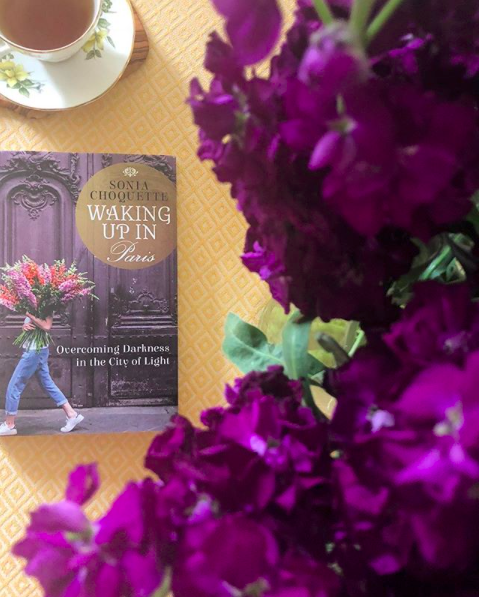
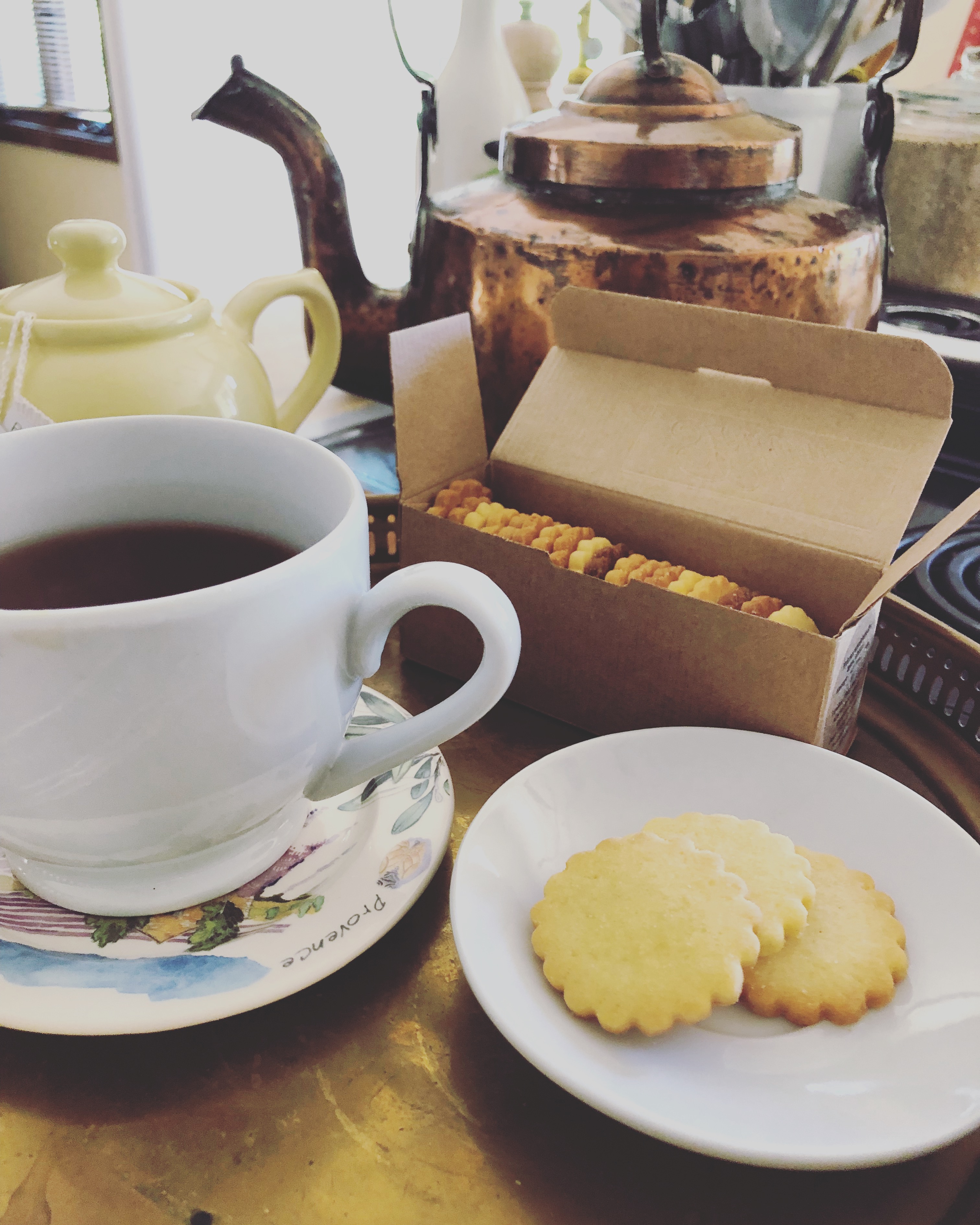
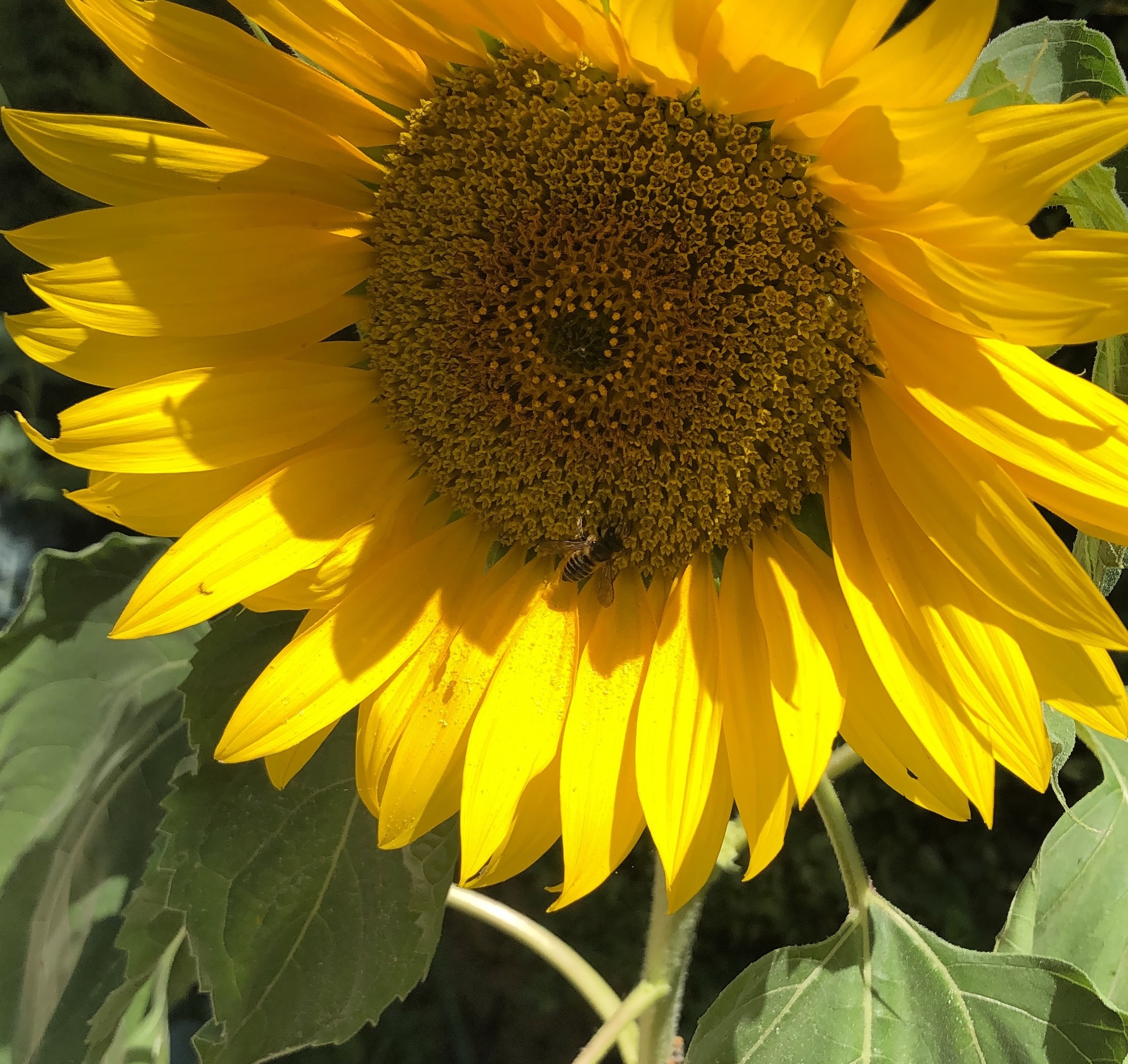


 The final episode taped in France during my travels shares a few memorable moments I had the opportunity experience, and as I had the opportunity to stay at author, blogger and photographer Sharon Santoni's home in France, I wanted to share a few images from the cottage I called home for a few days in northern France.
The final episode taped in France during my travels shares a few memorable moments I had the opportunity experience, and as I had the opportunity to stay at author, blogger and photographer Sharon Santoni's home in France, I wanted to share a few images from the cottage I called home for a few days in northern France.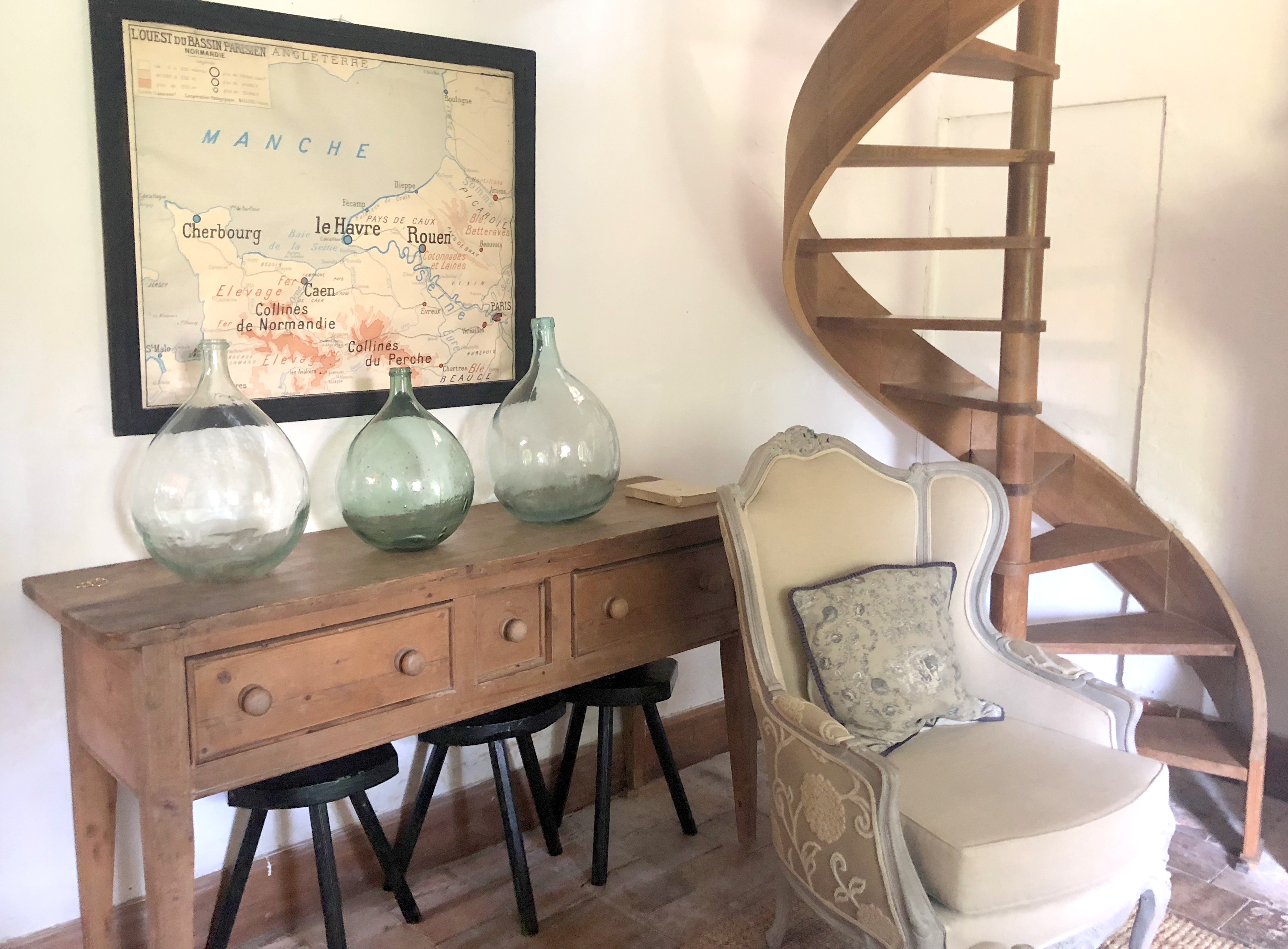
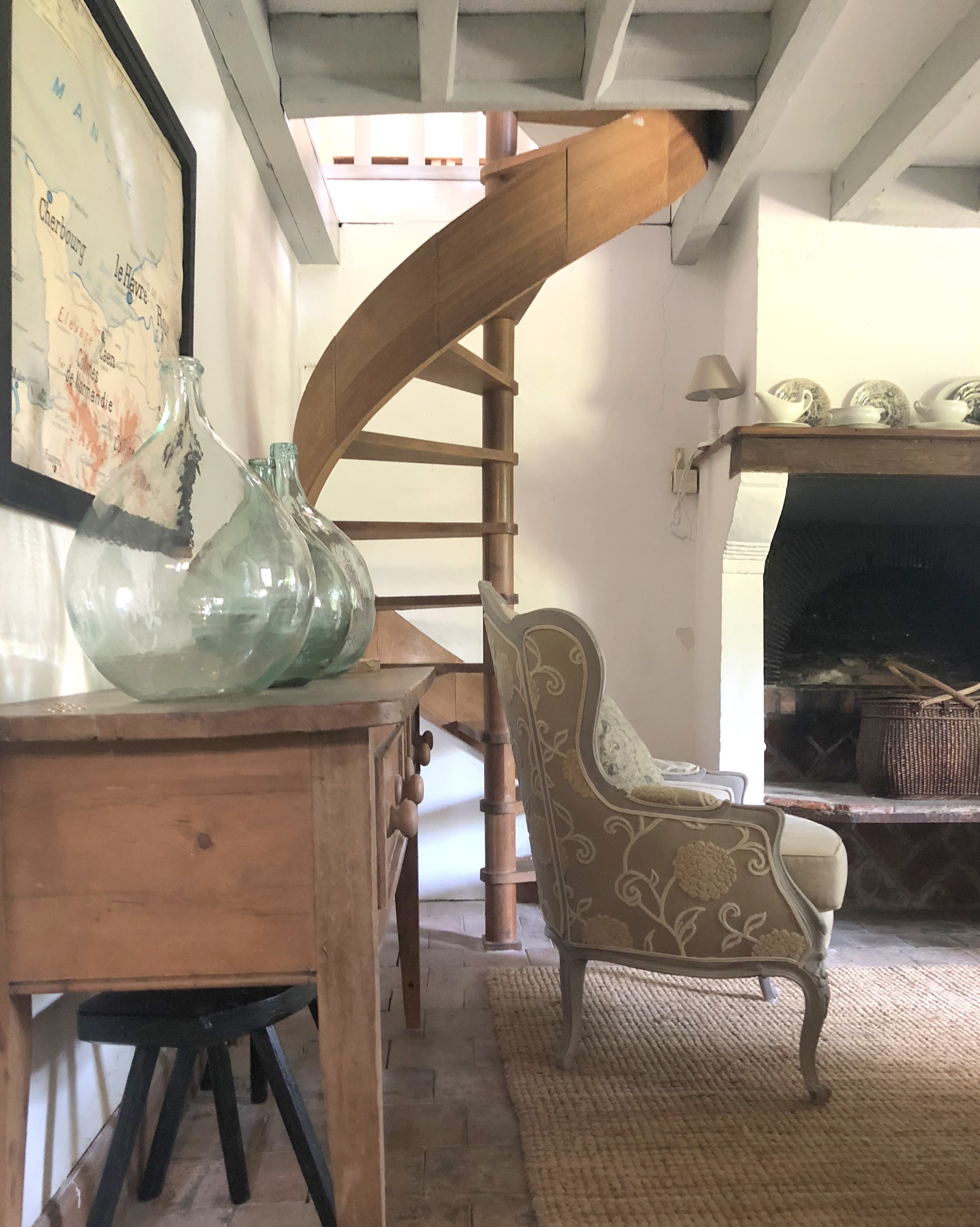




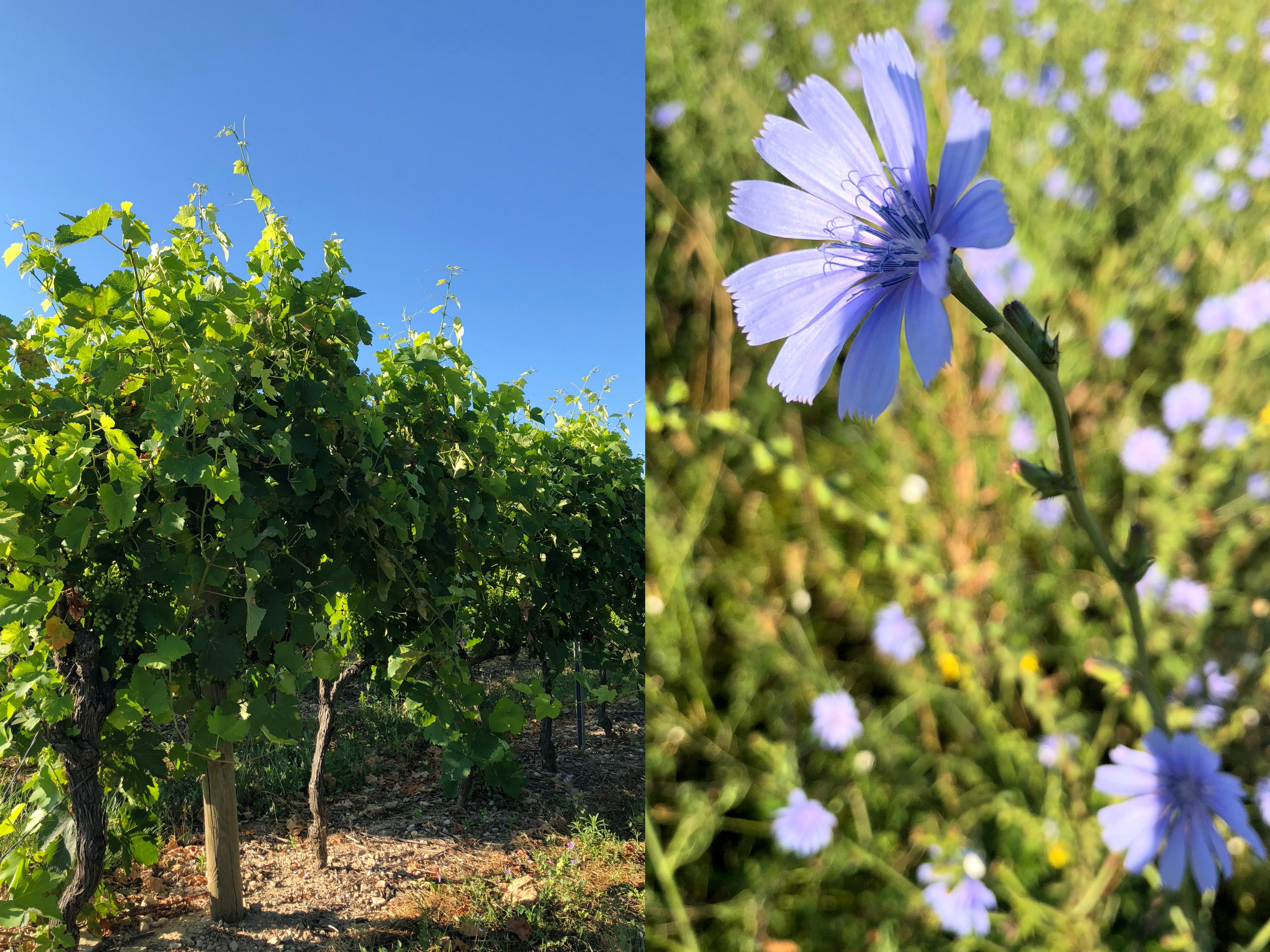

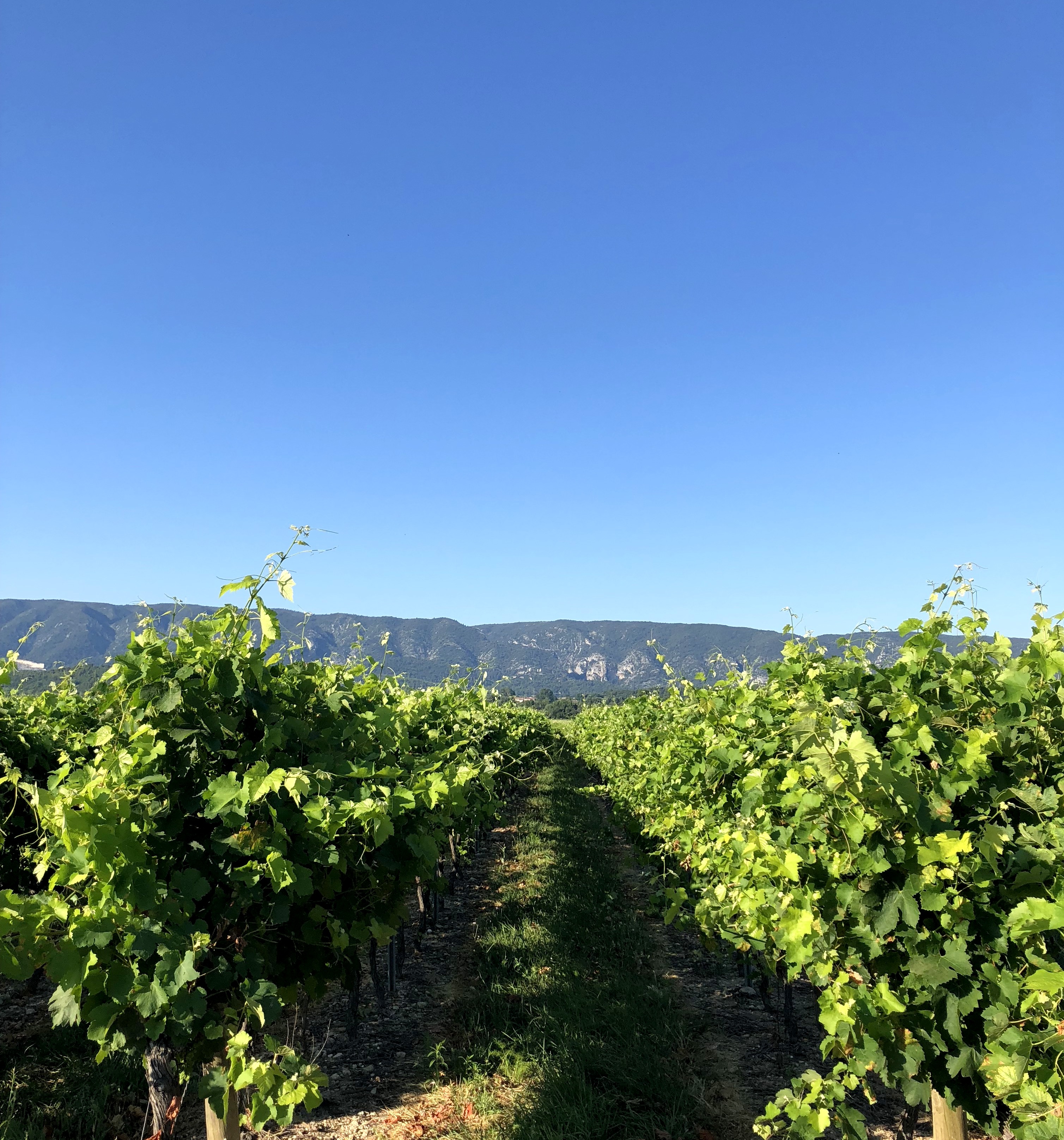
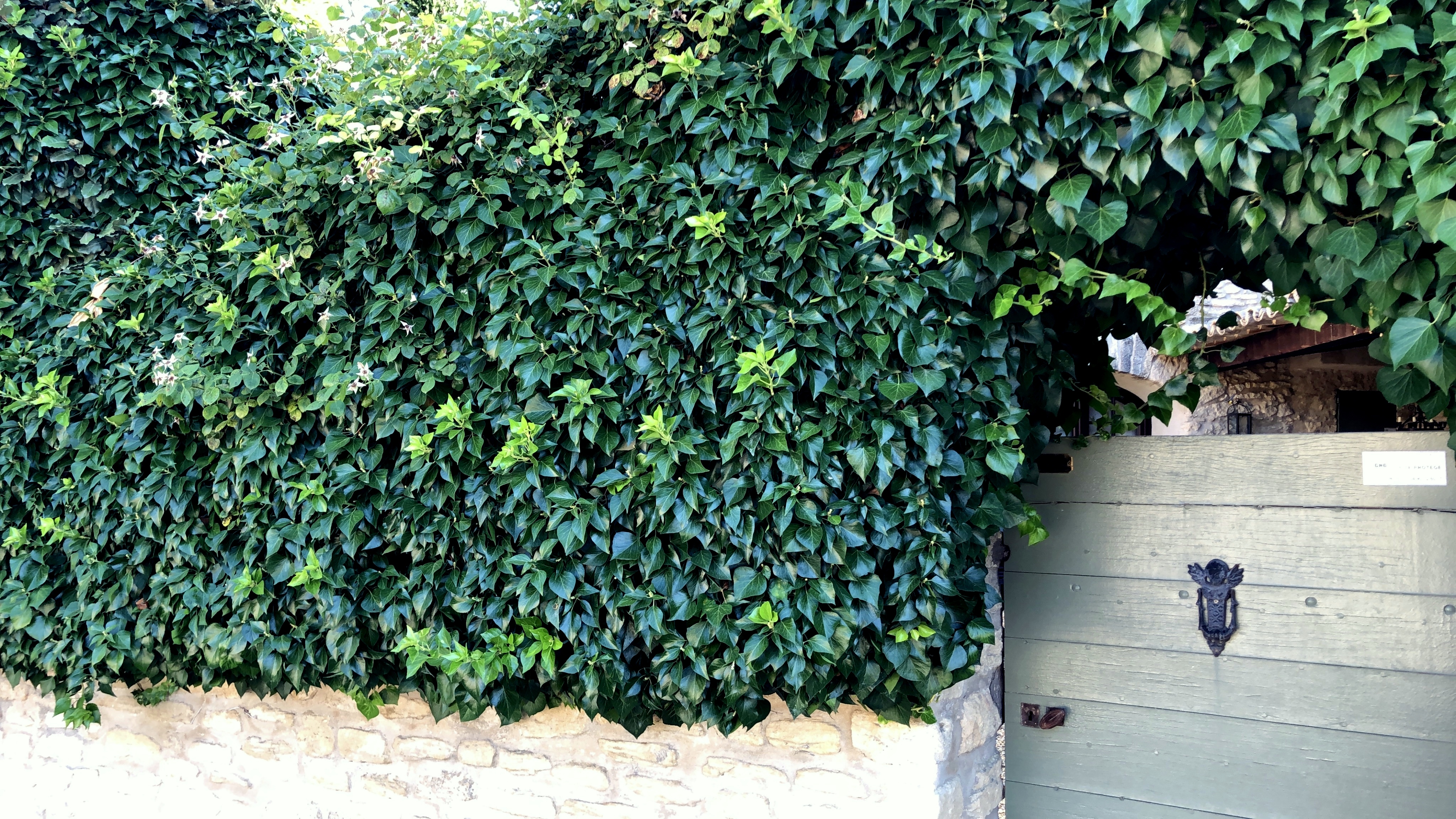
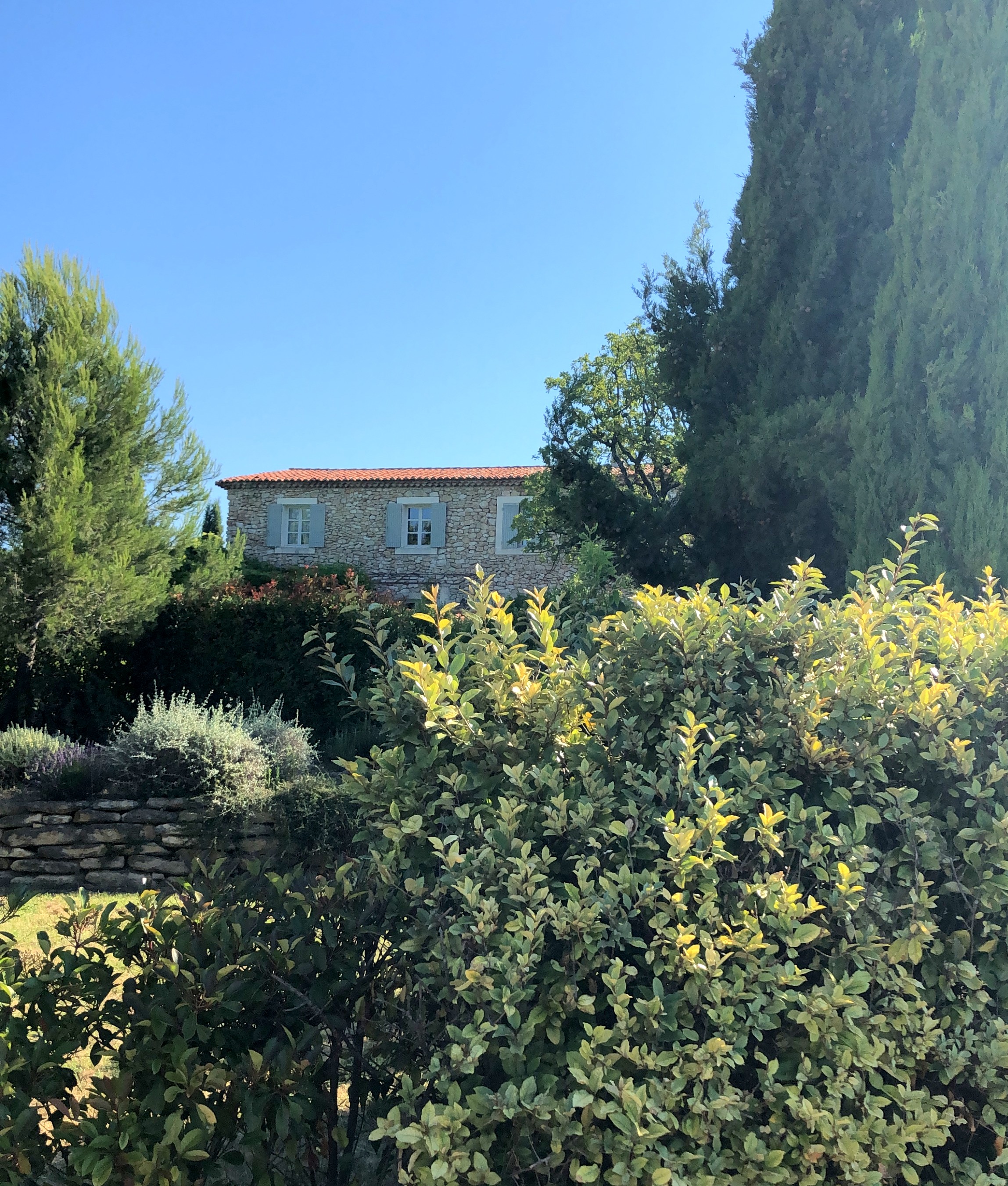
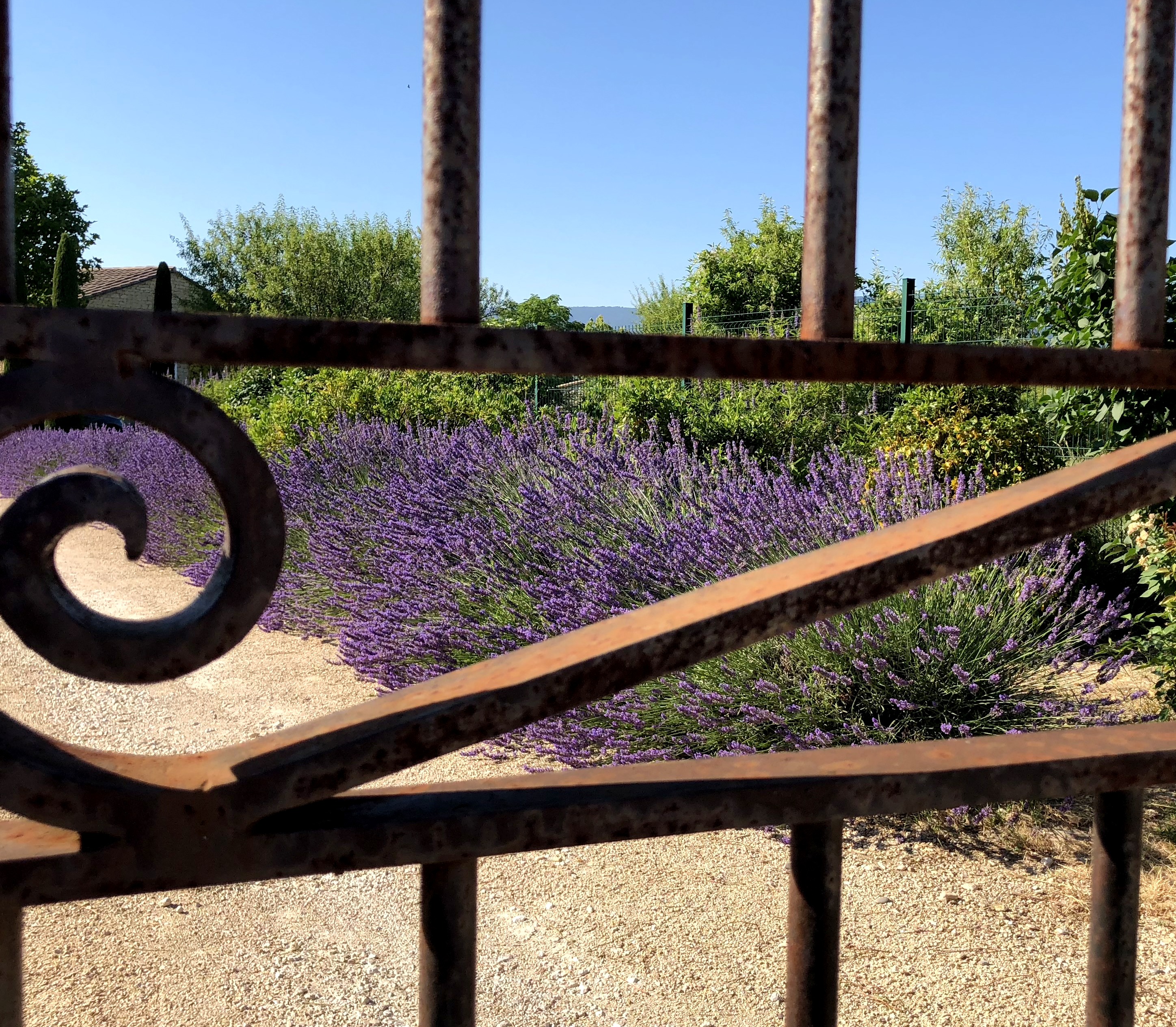
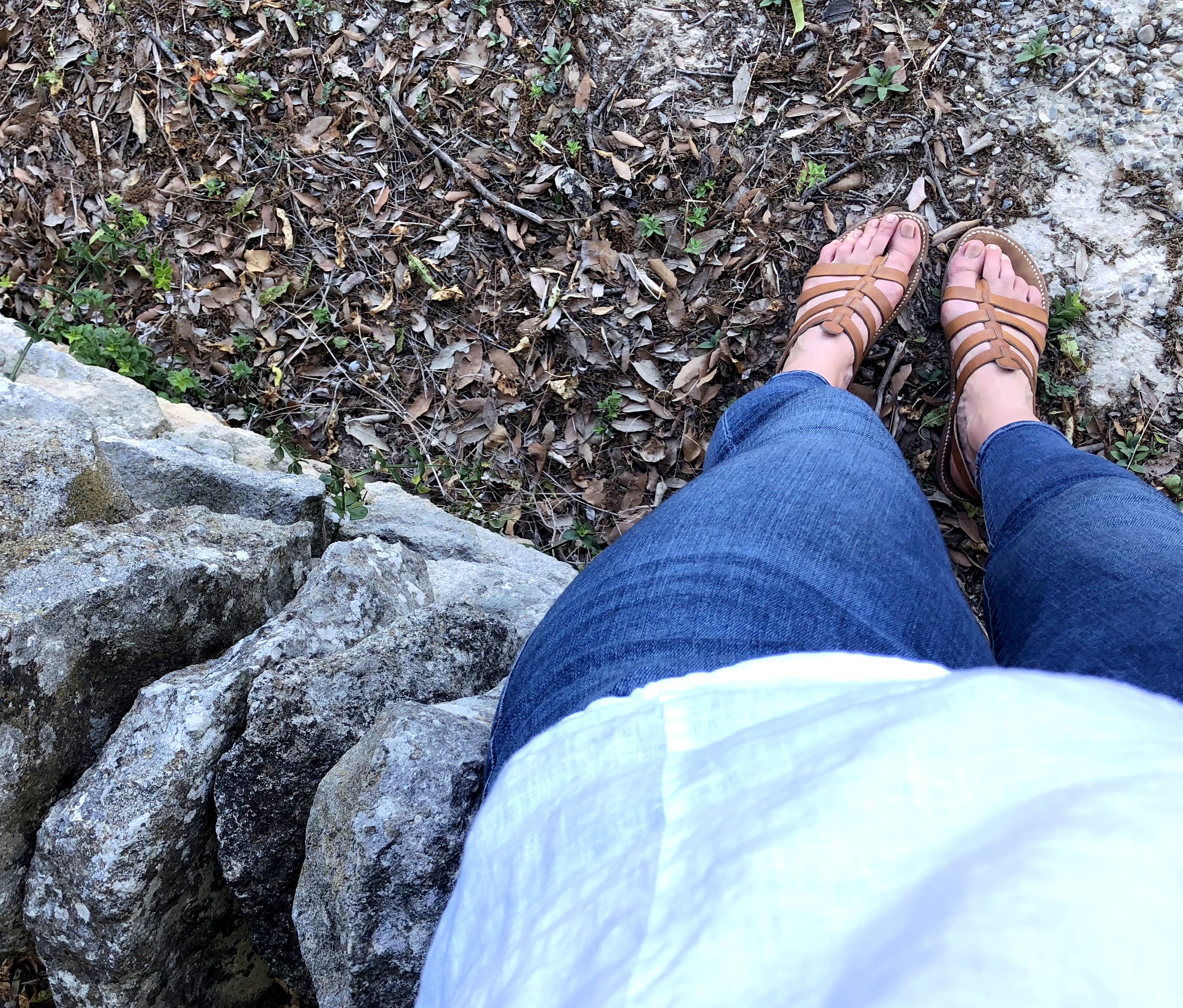
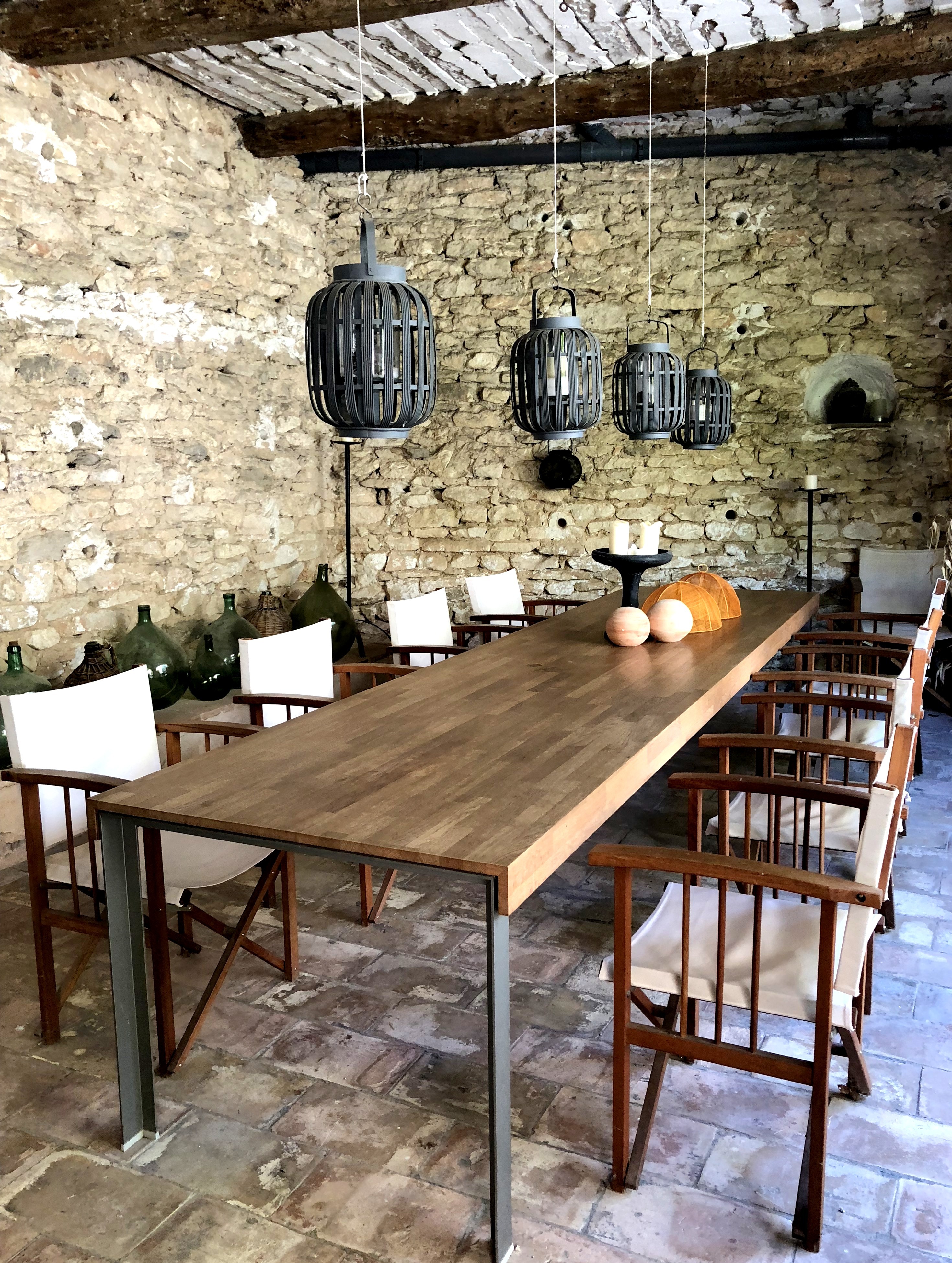

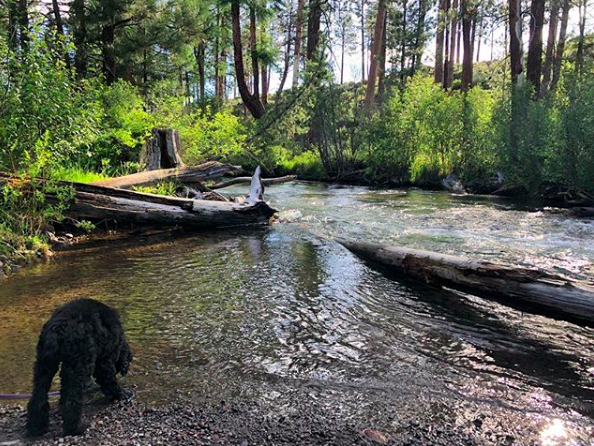
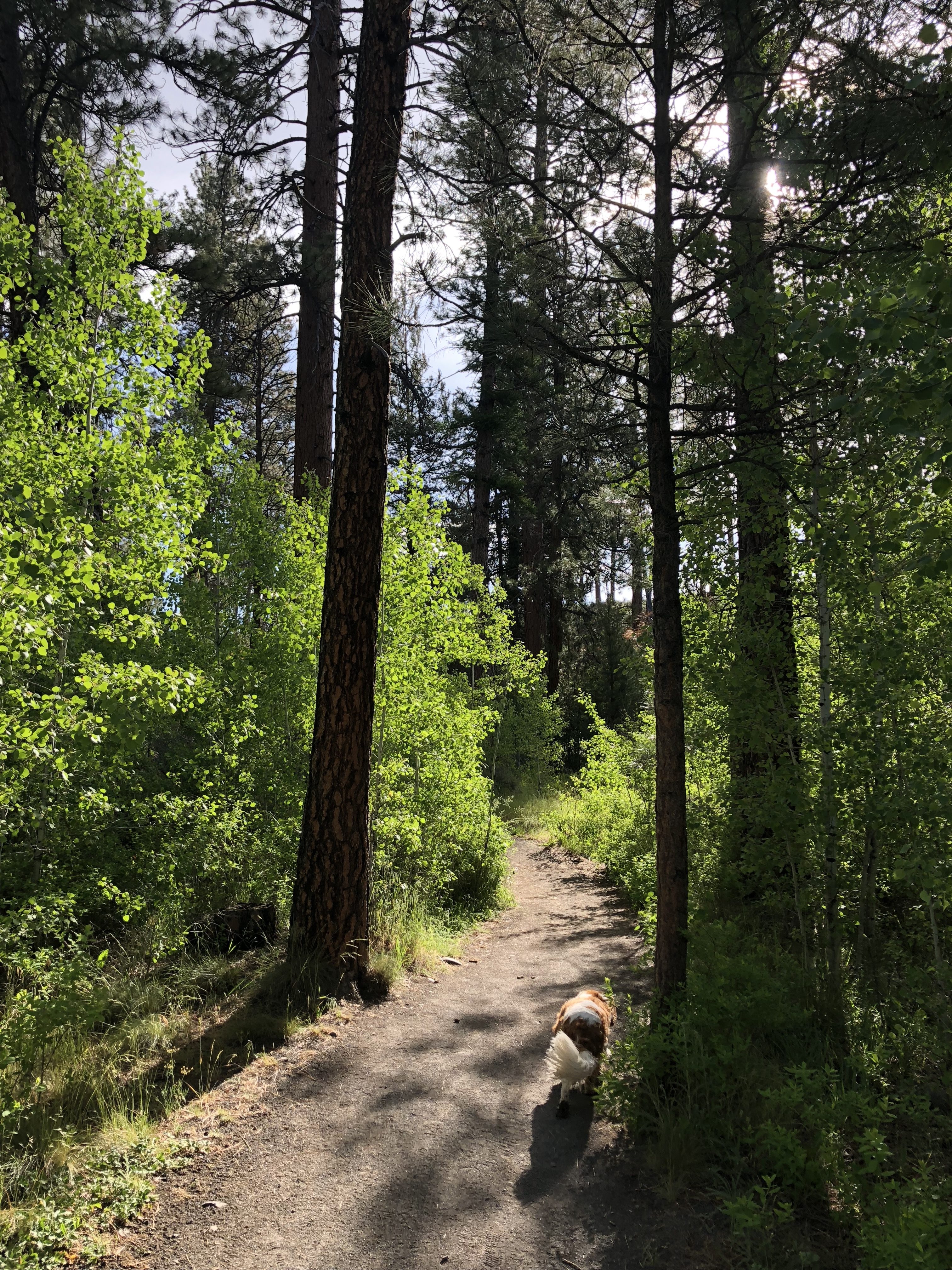 ~Subscribe to
~Subscribe to 